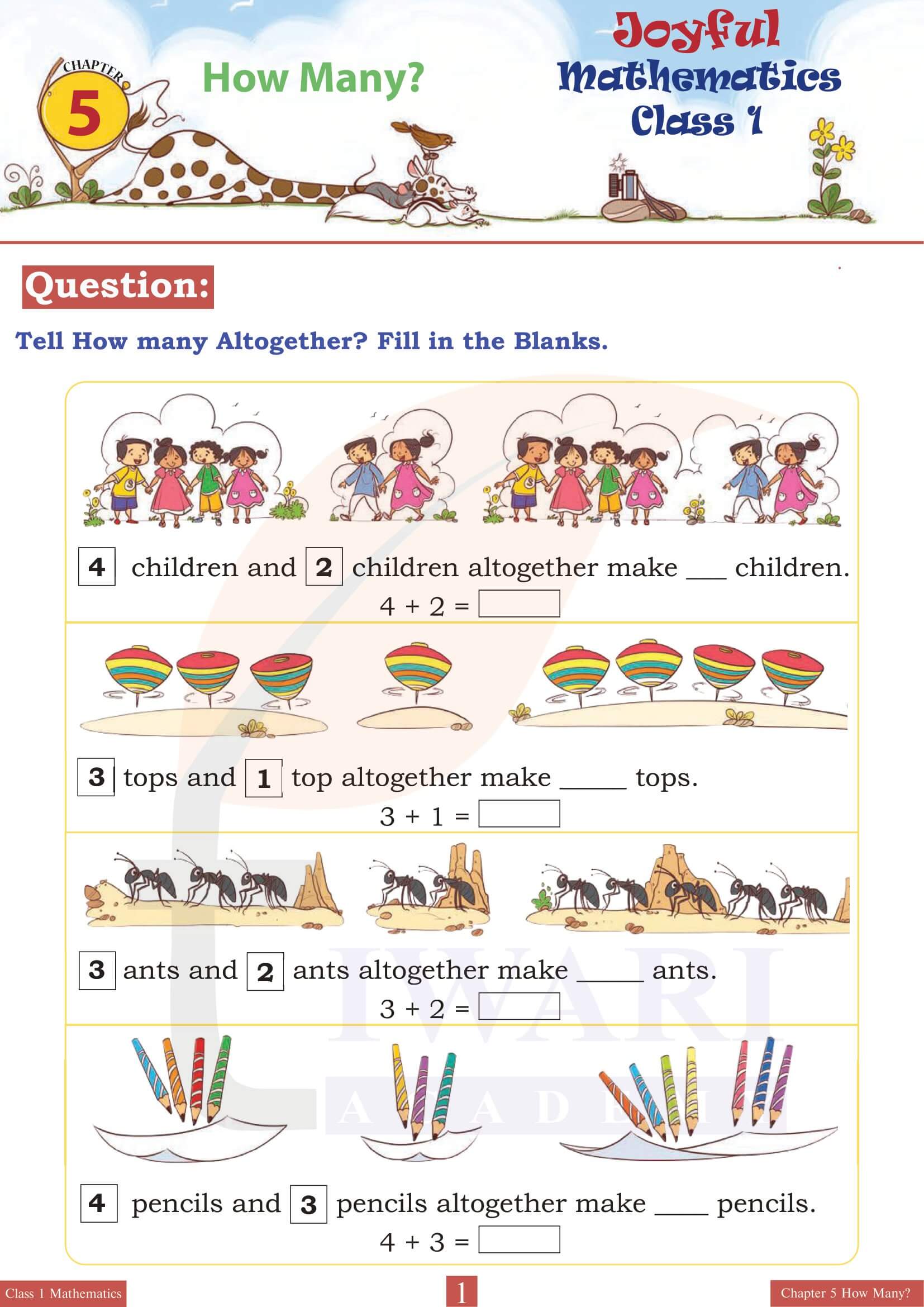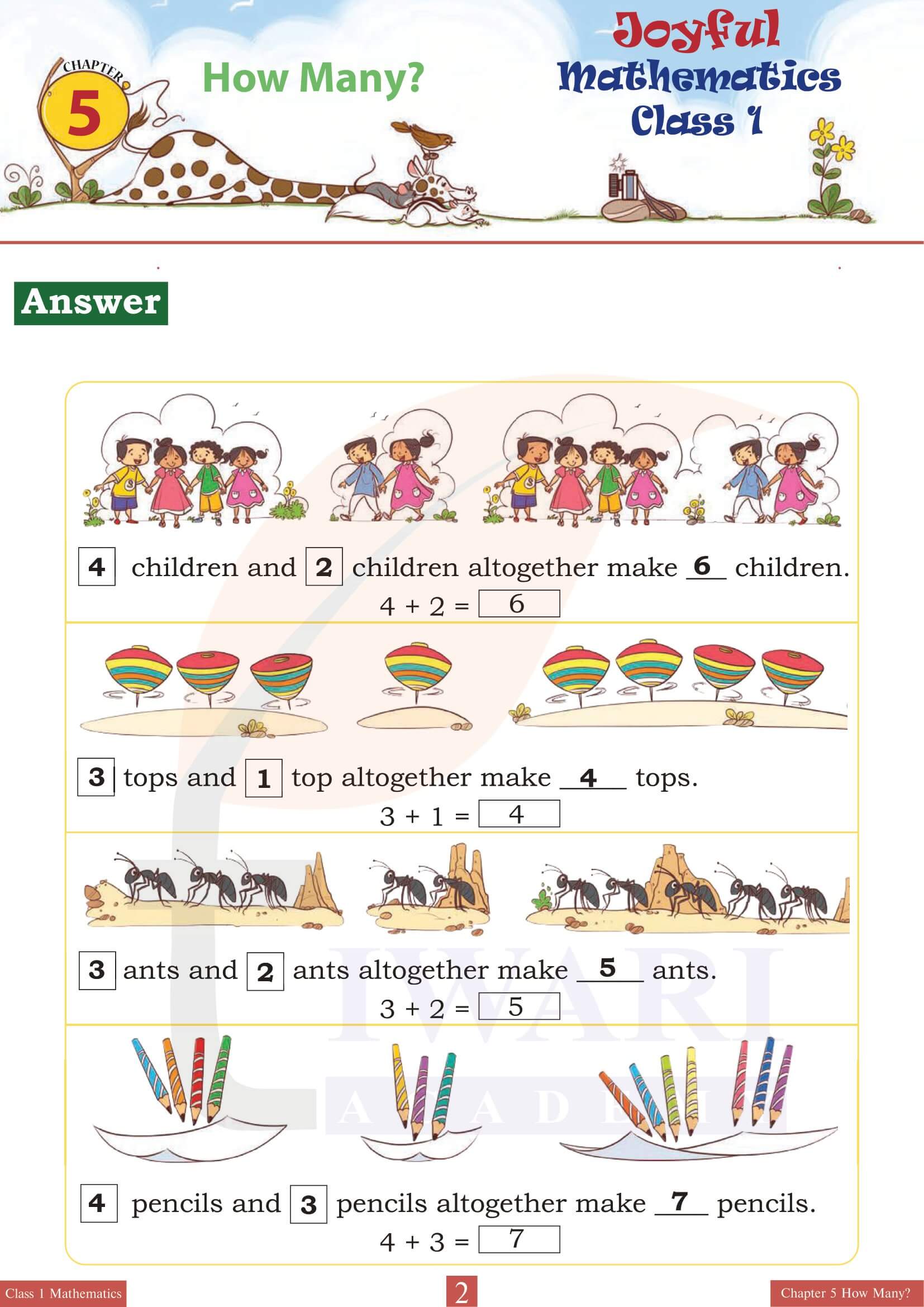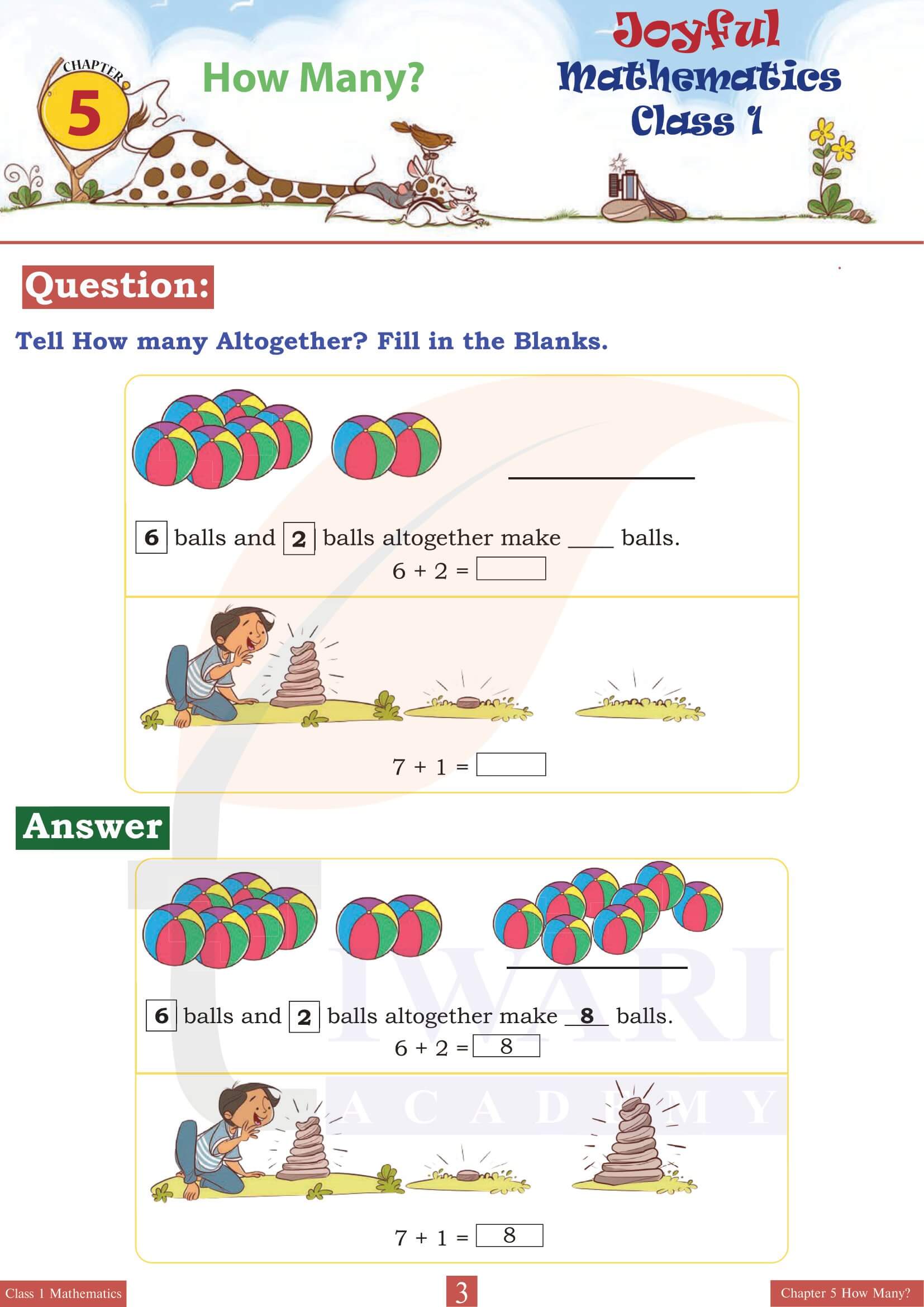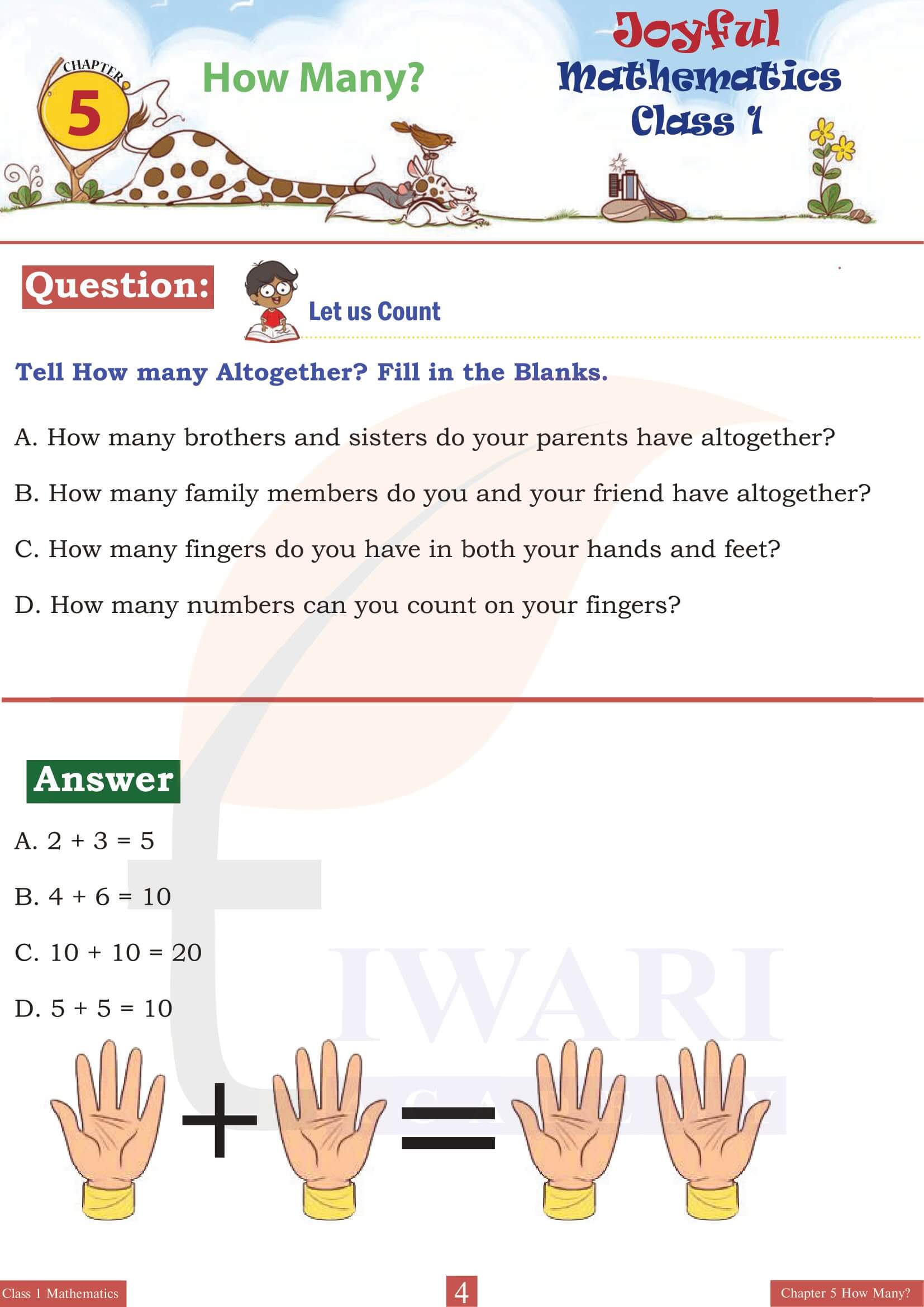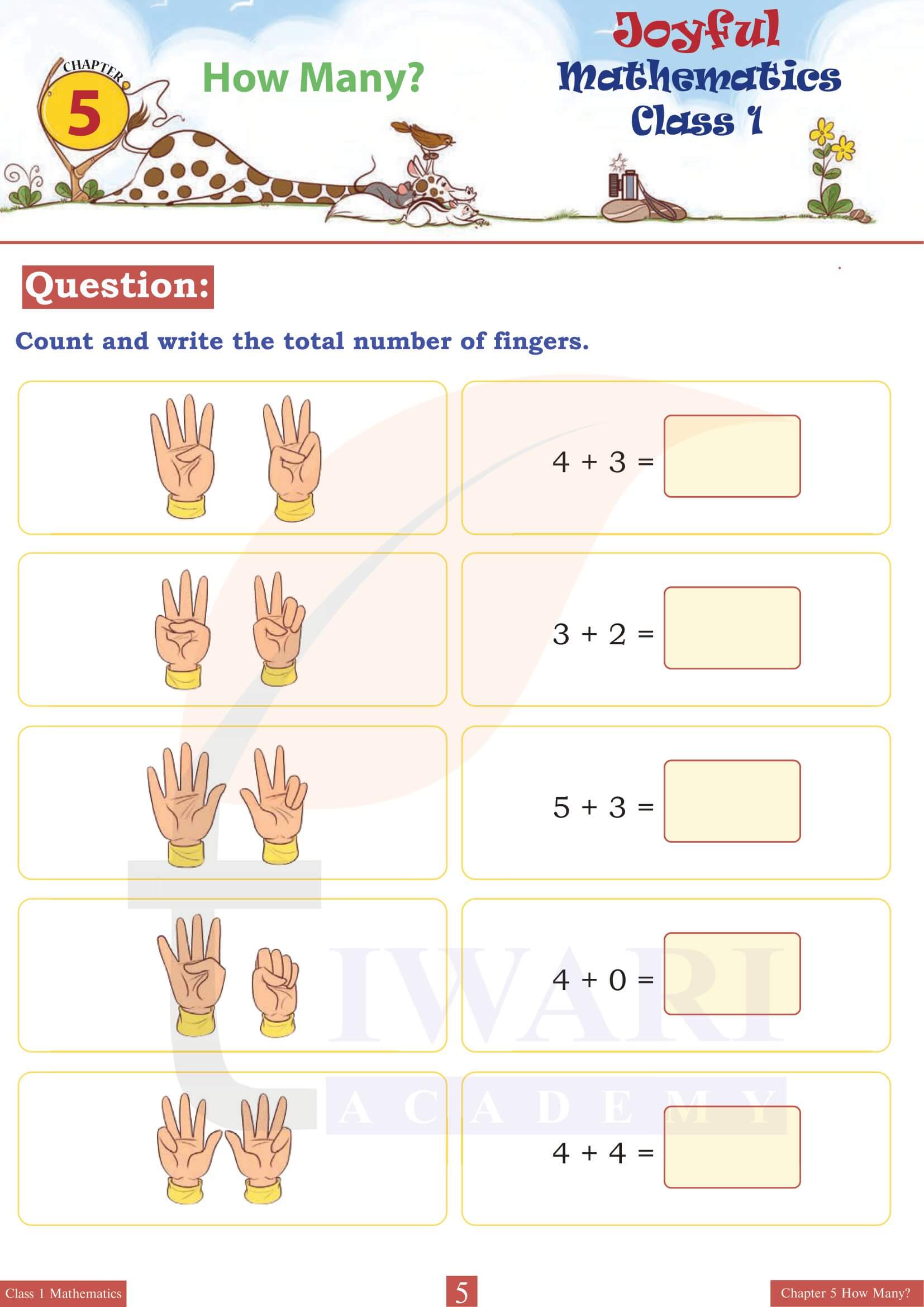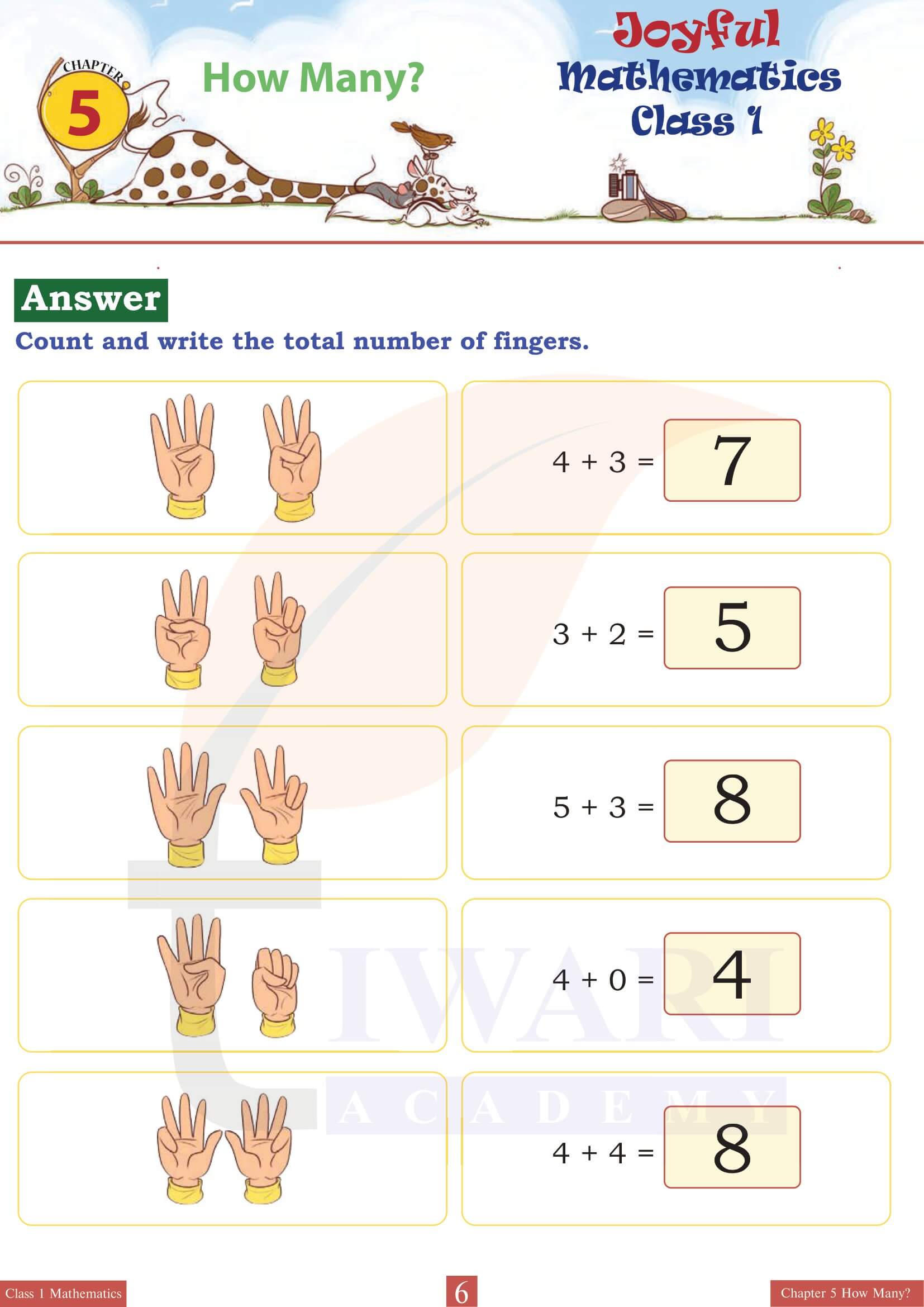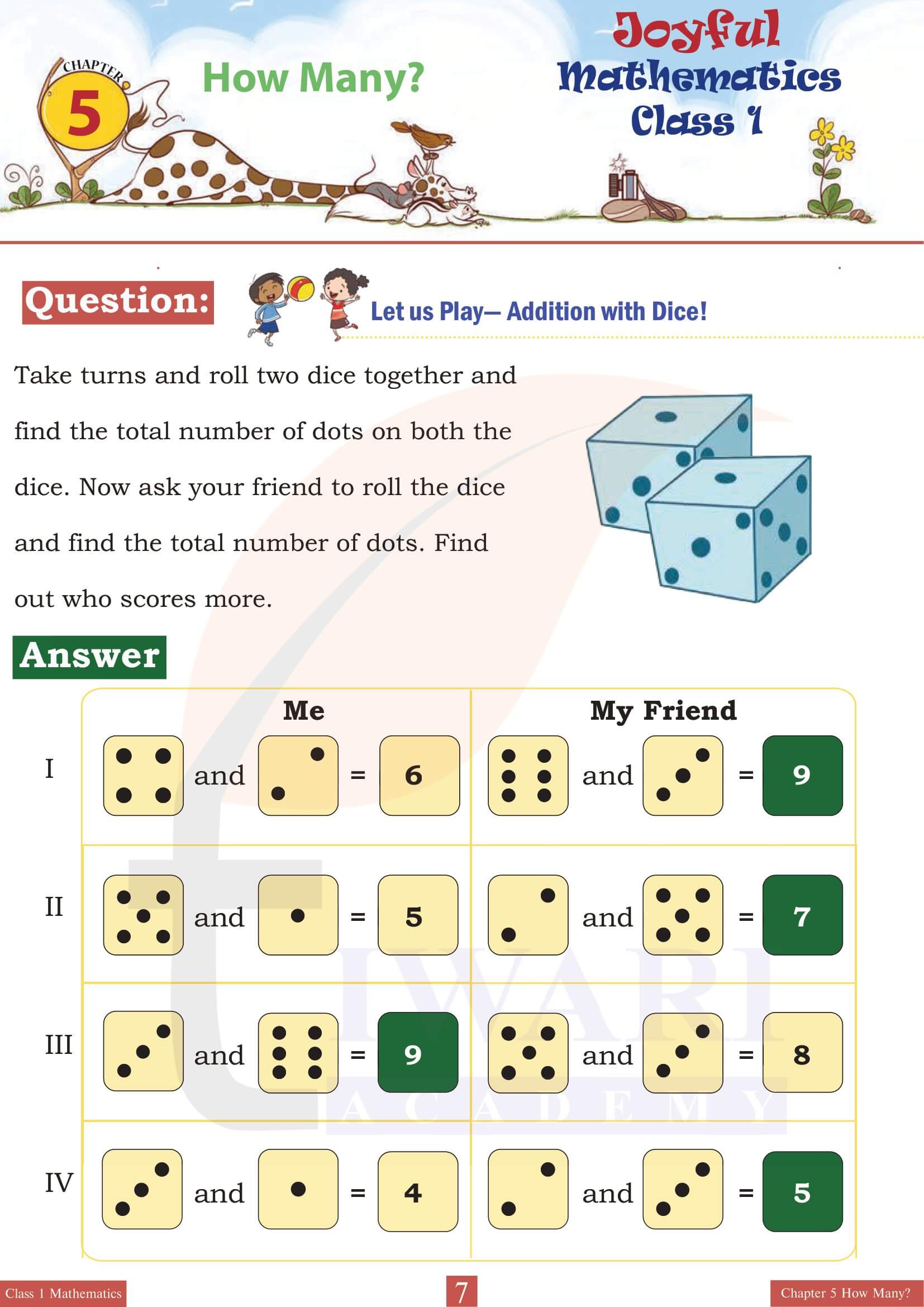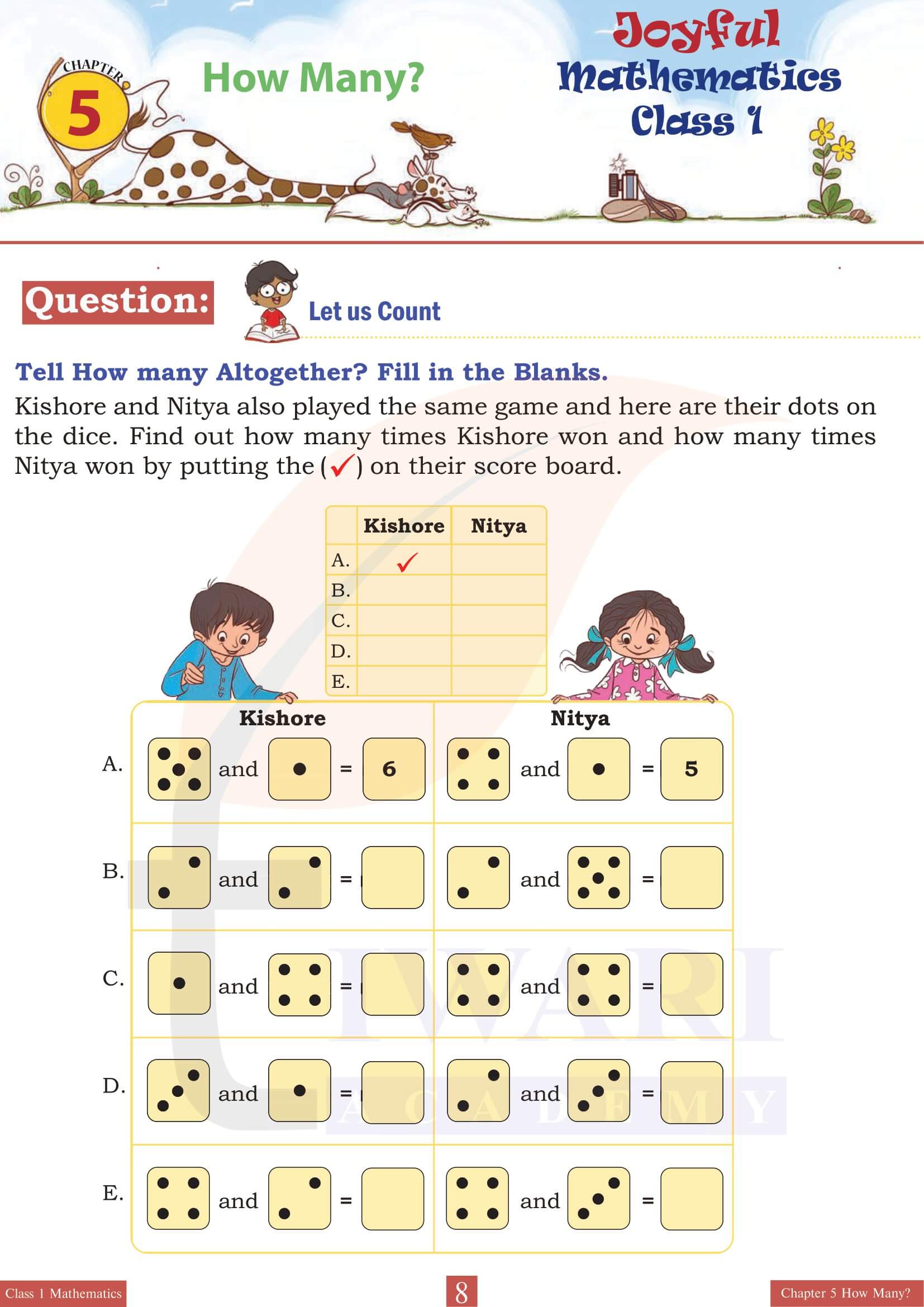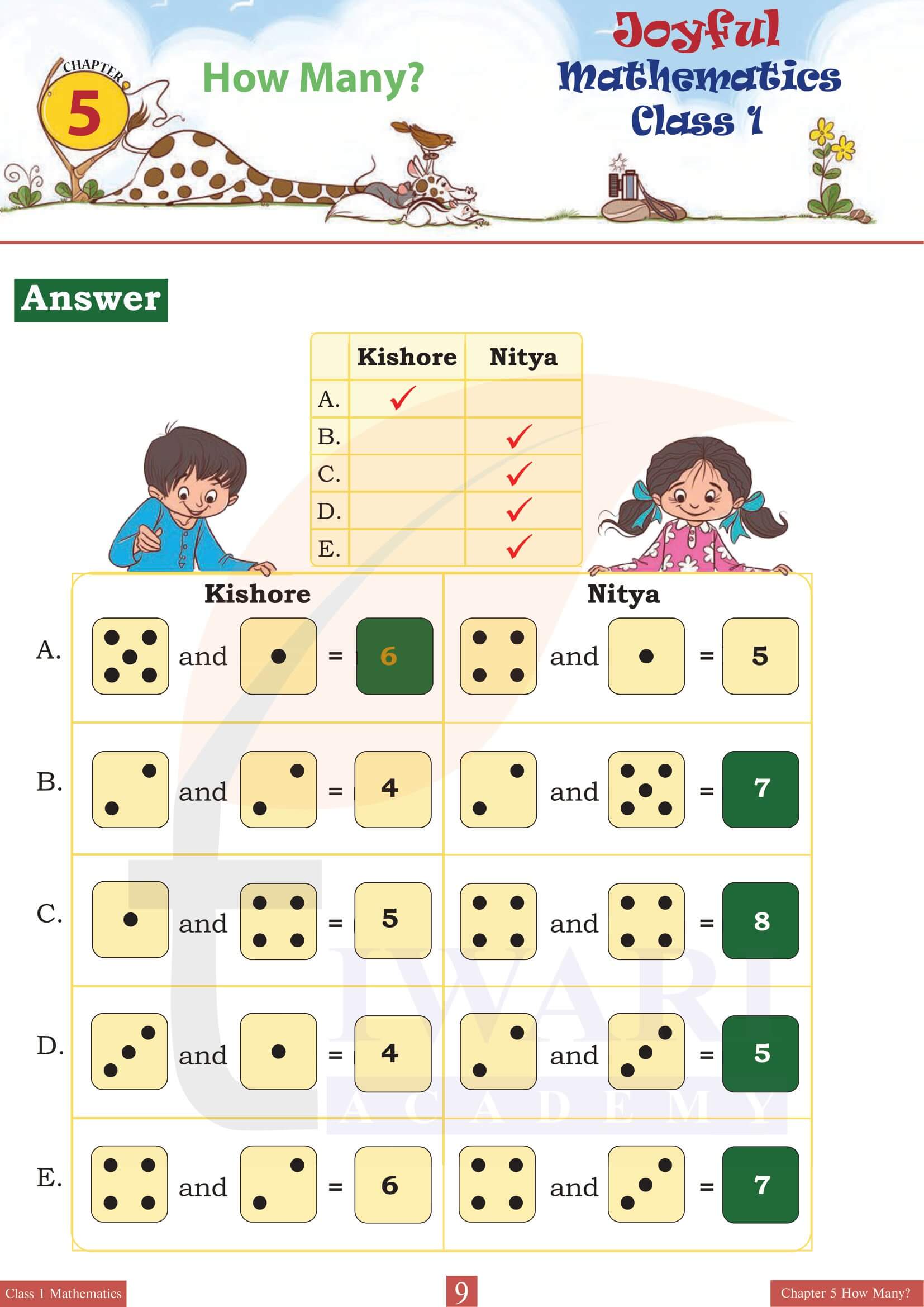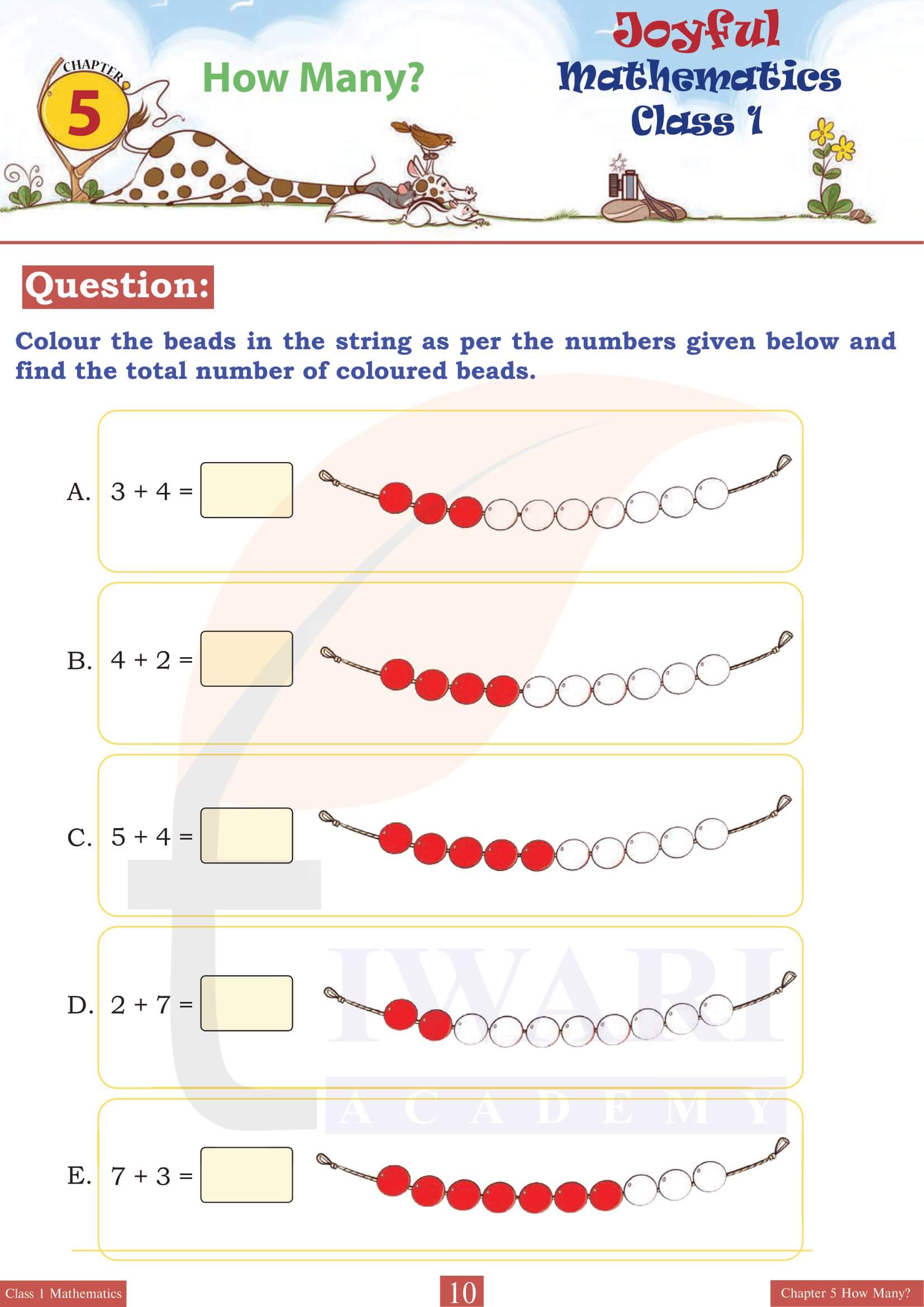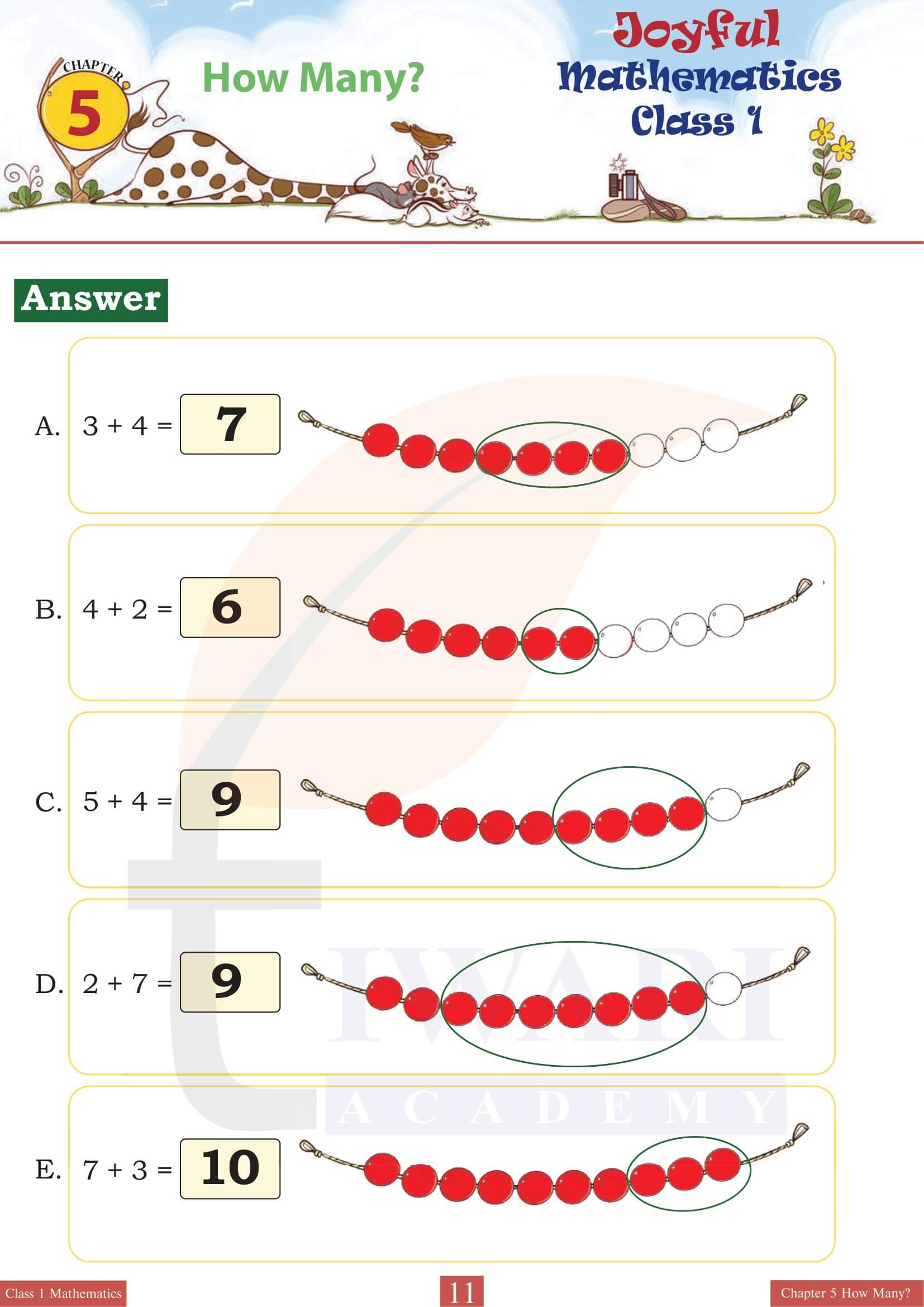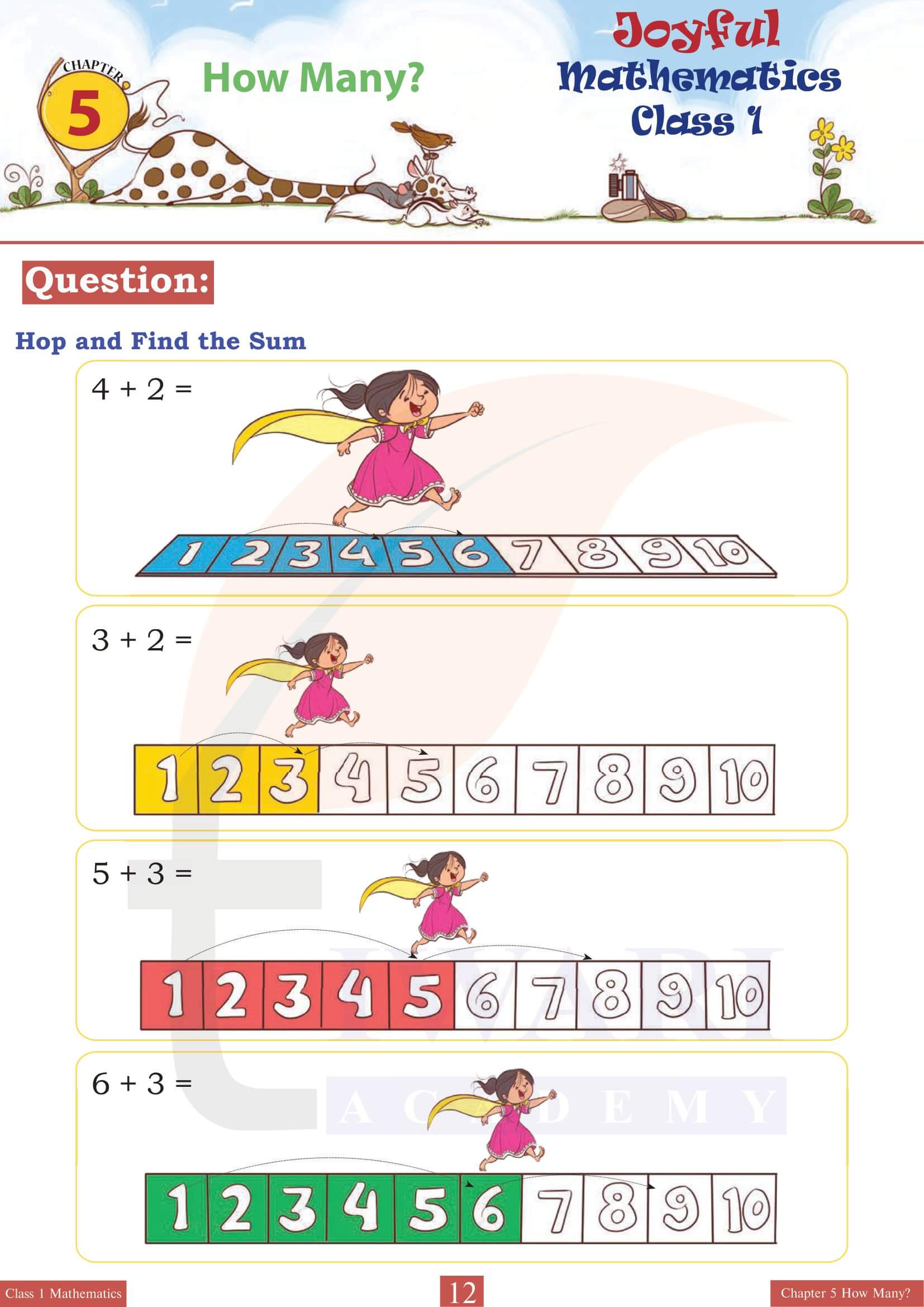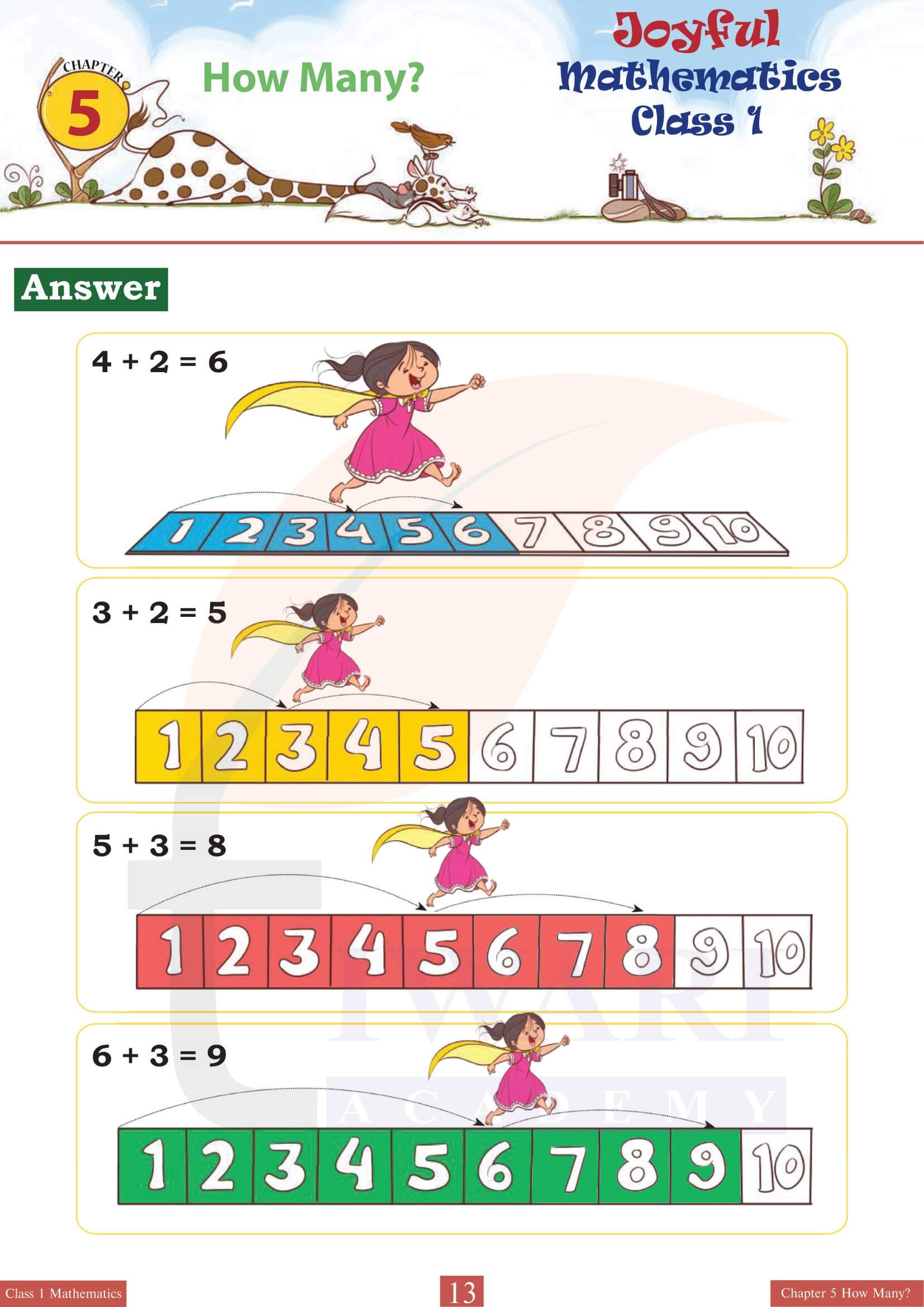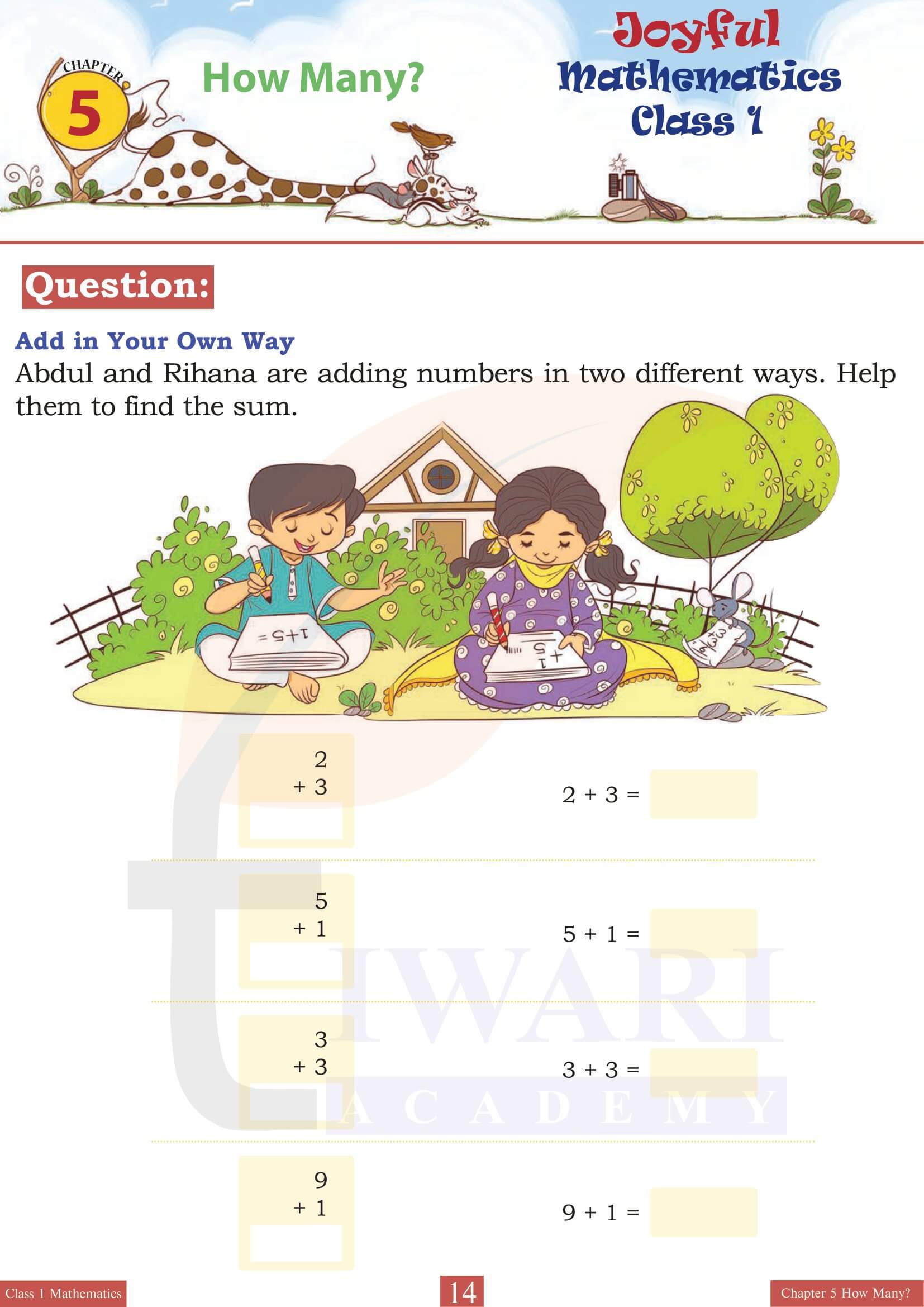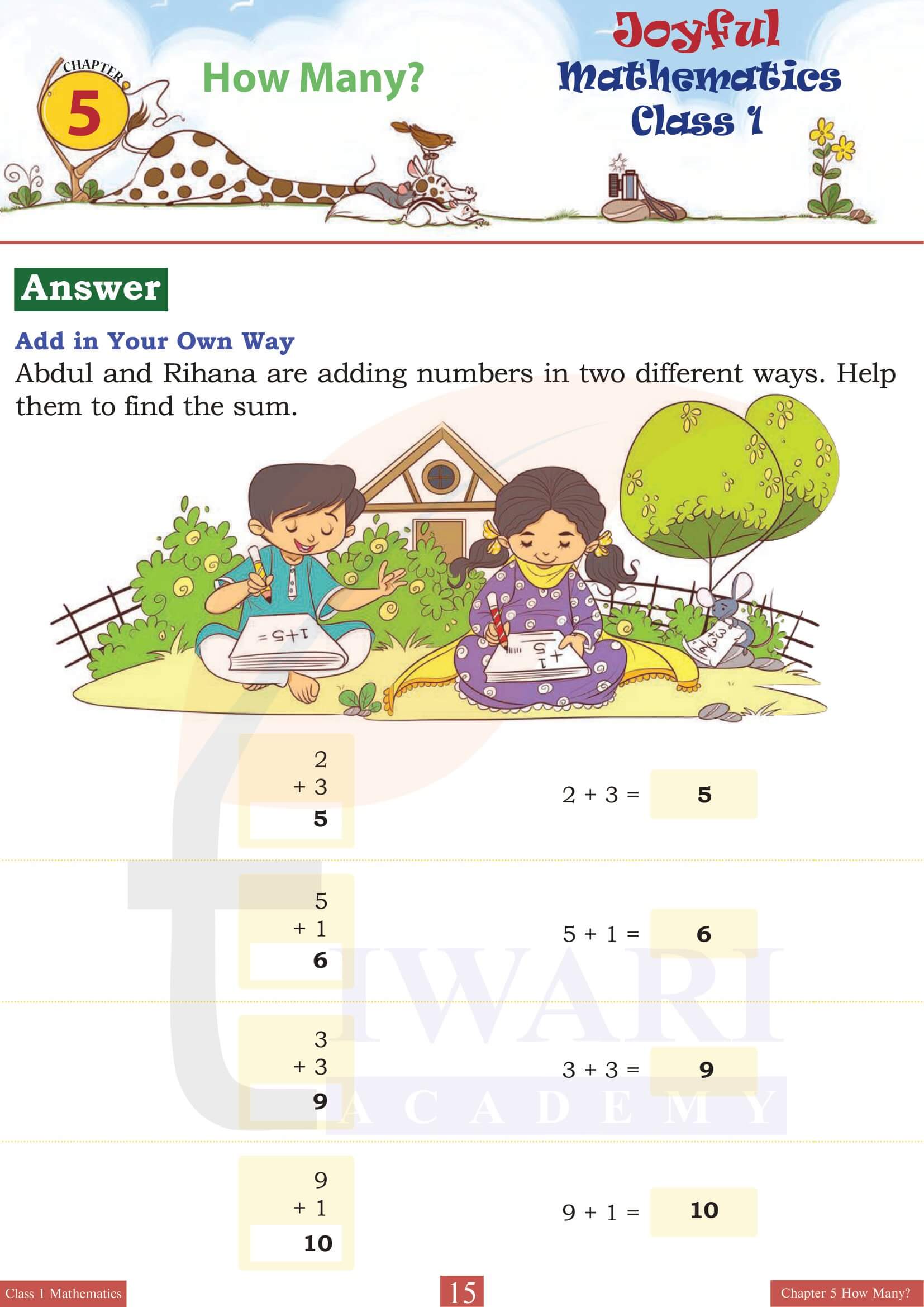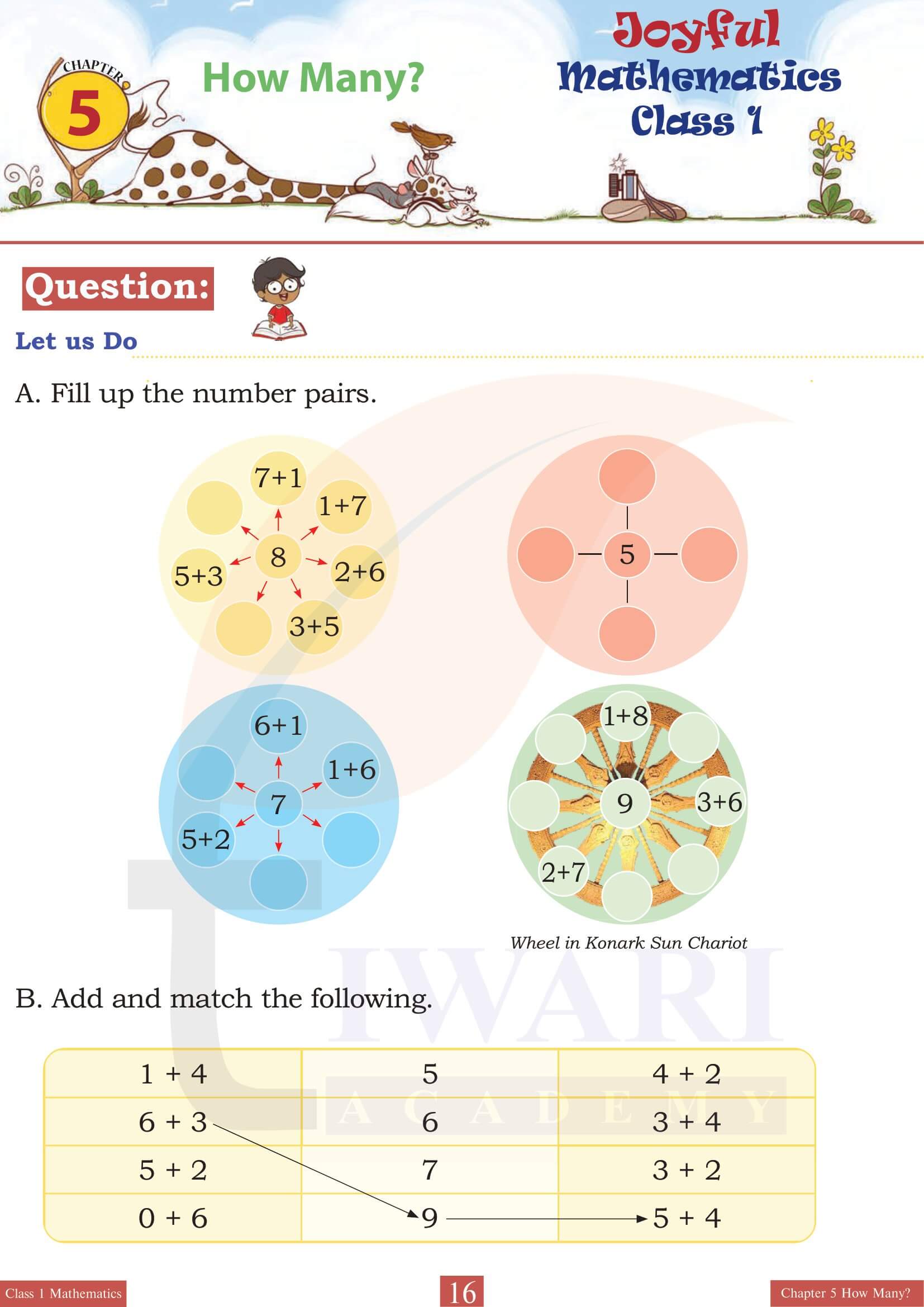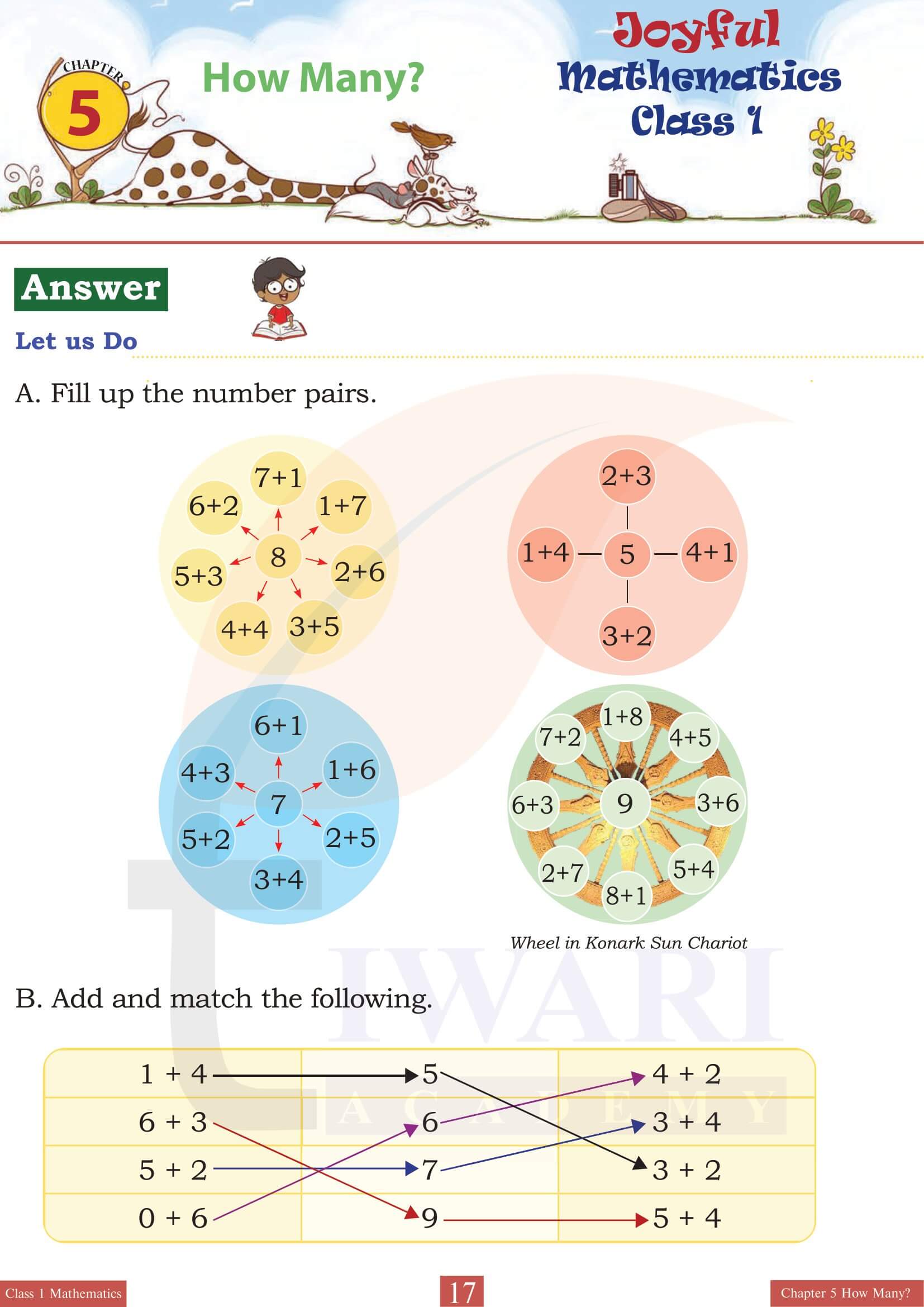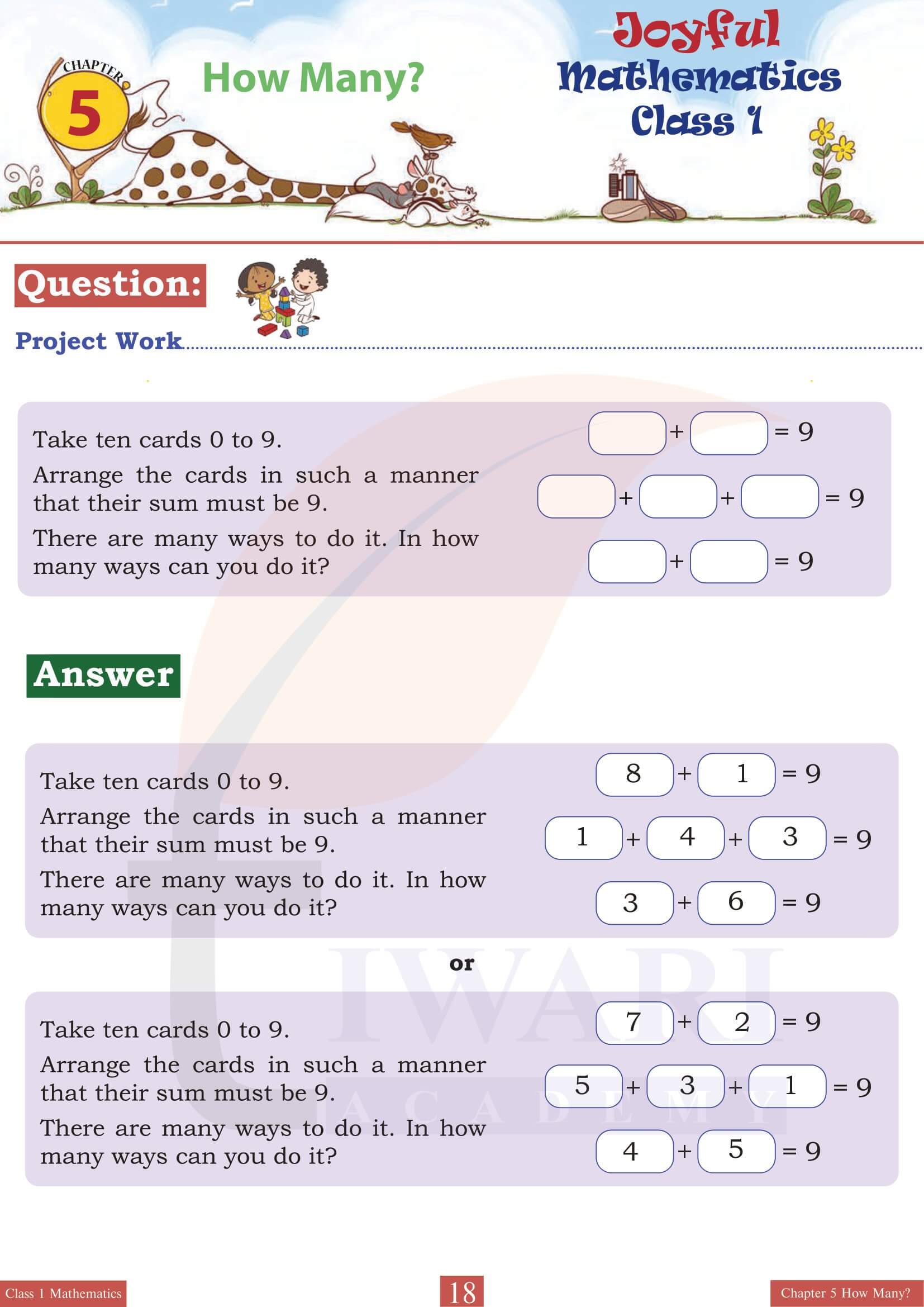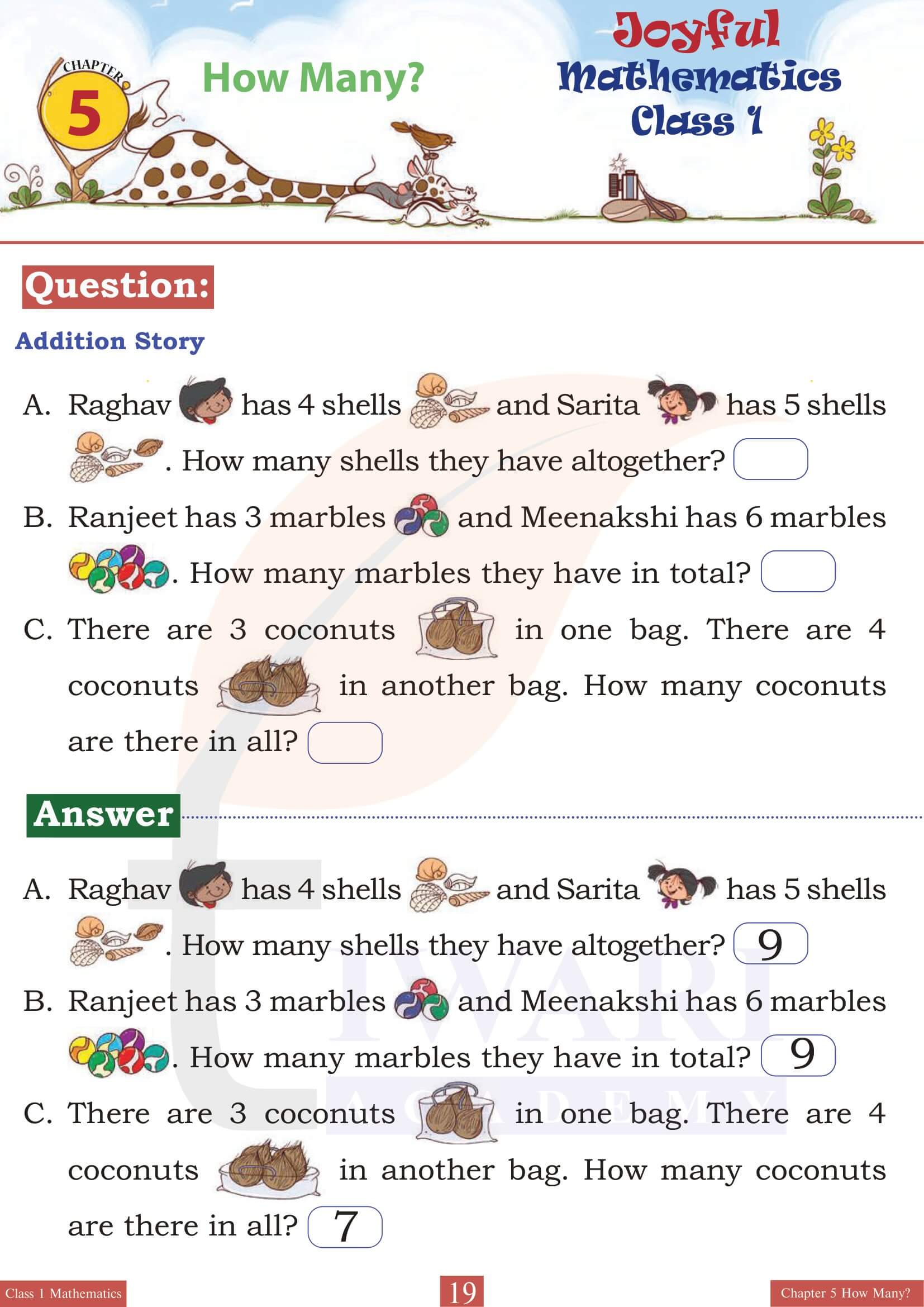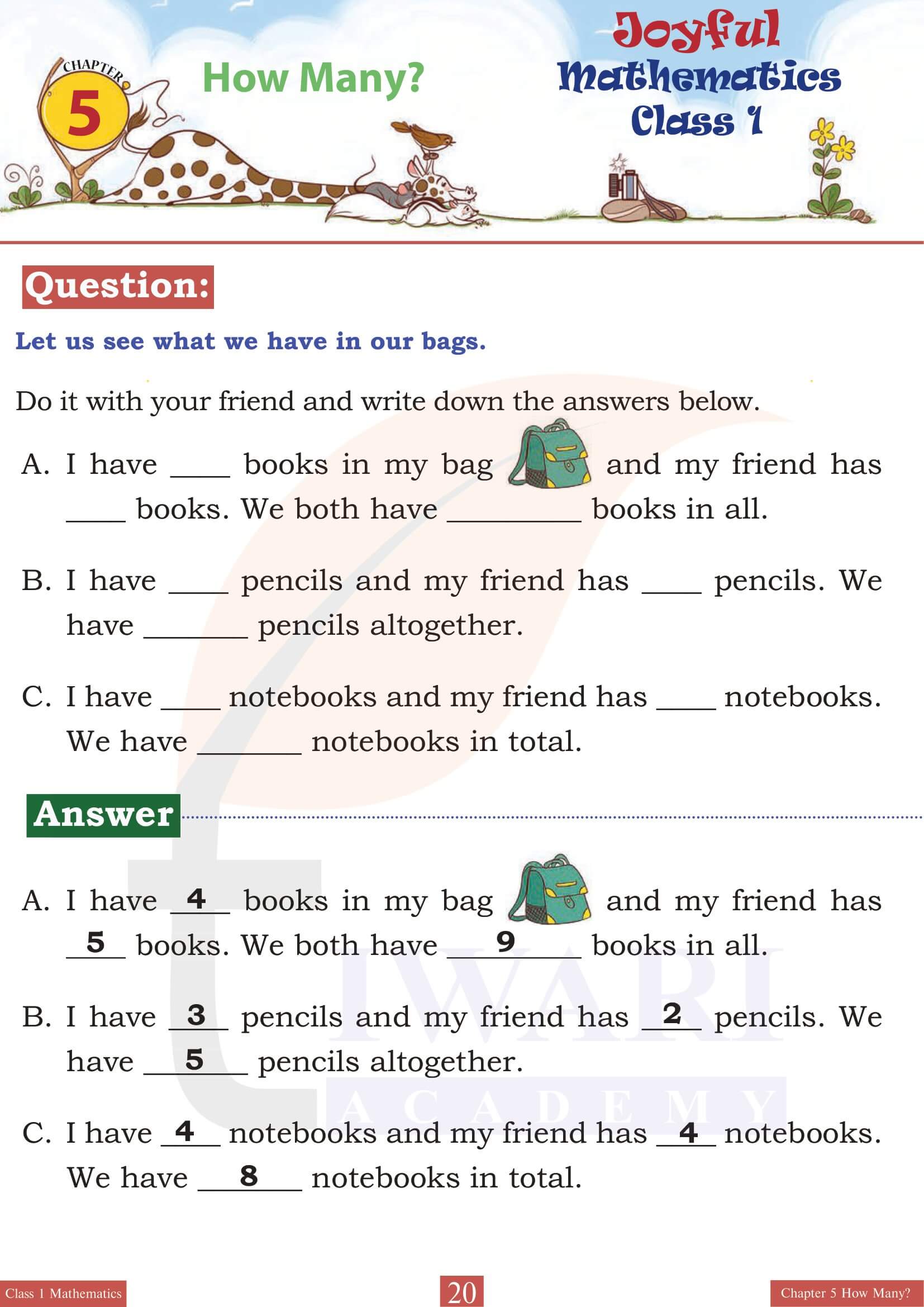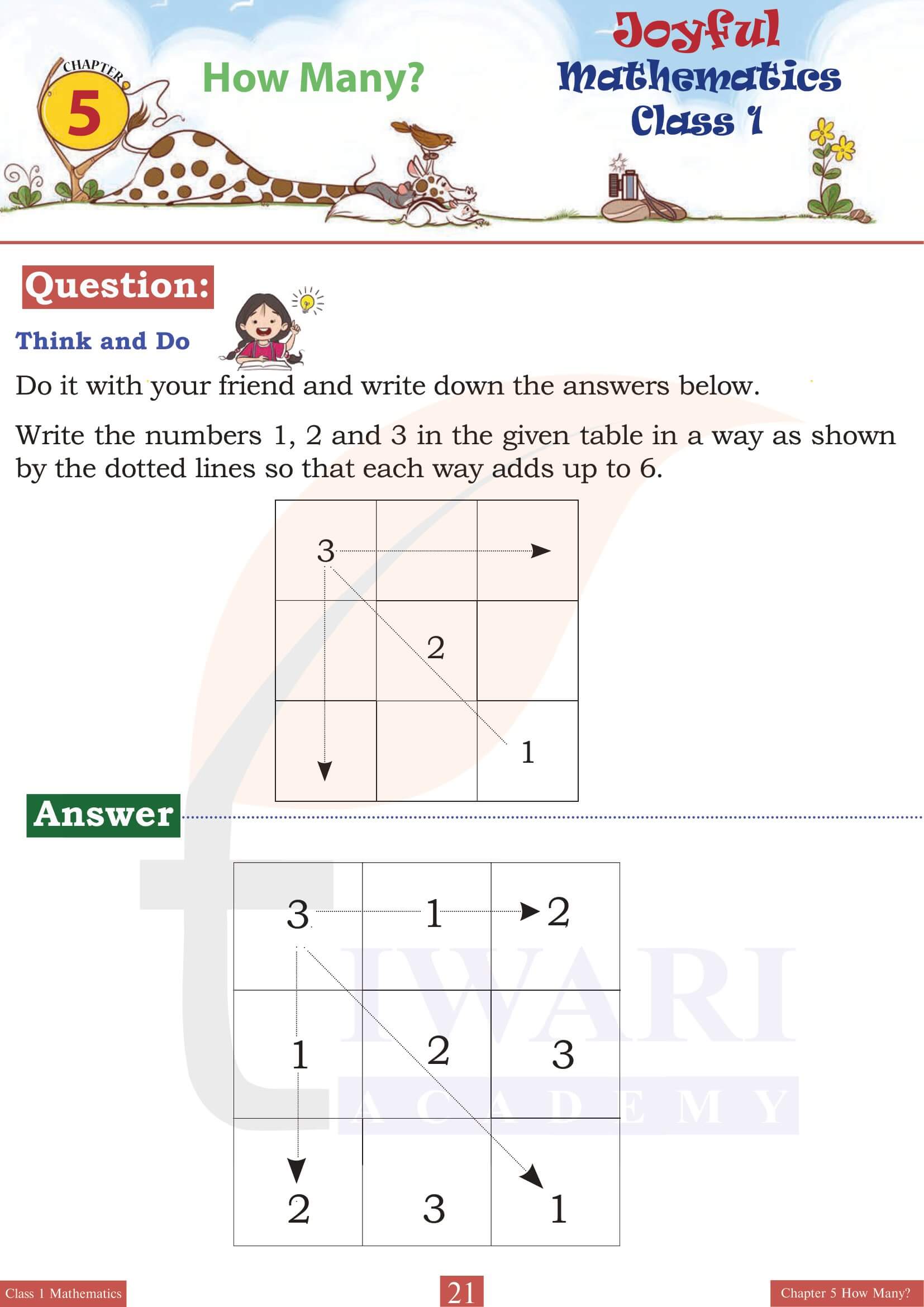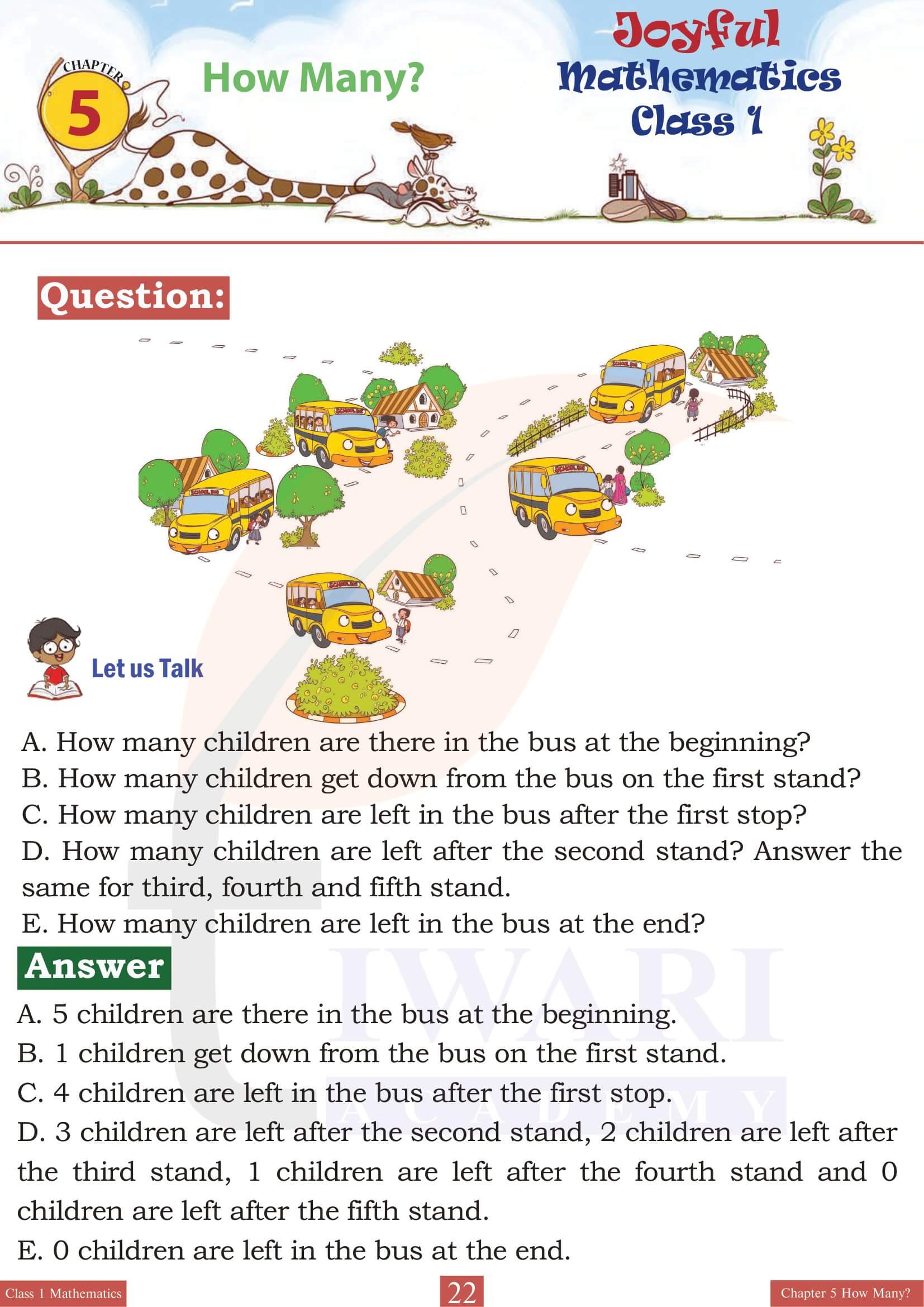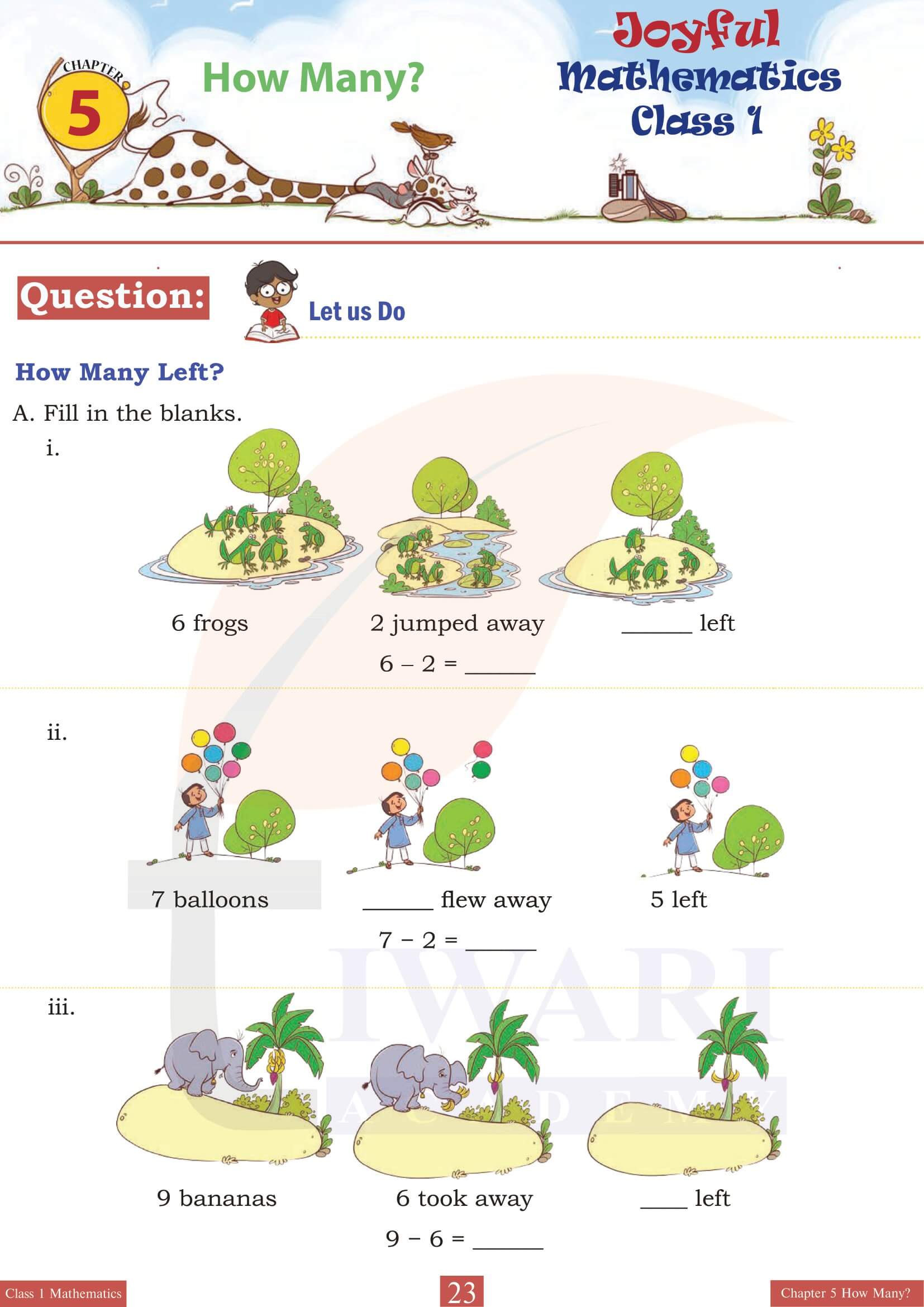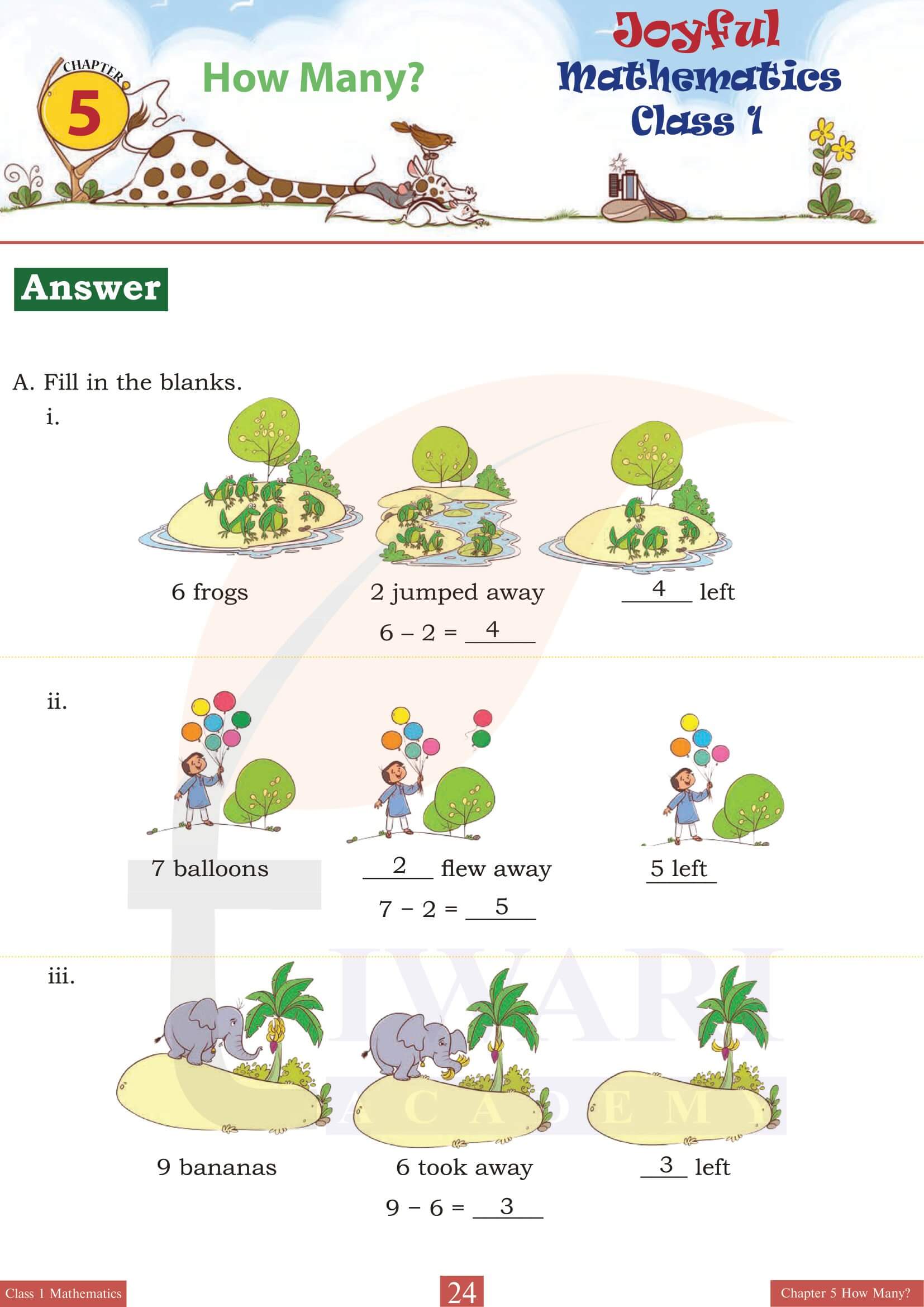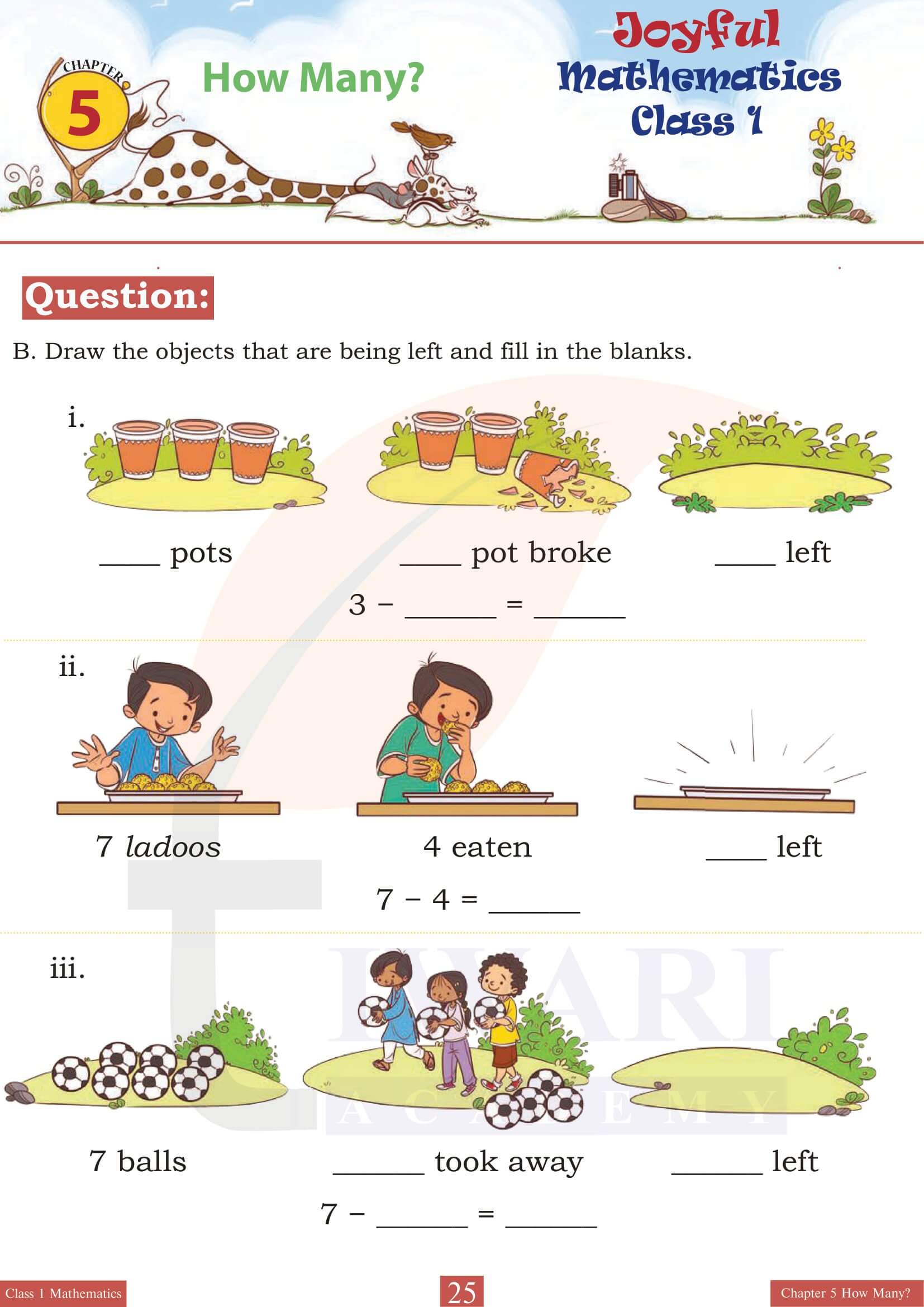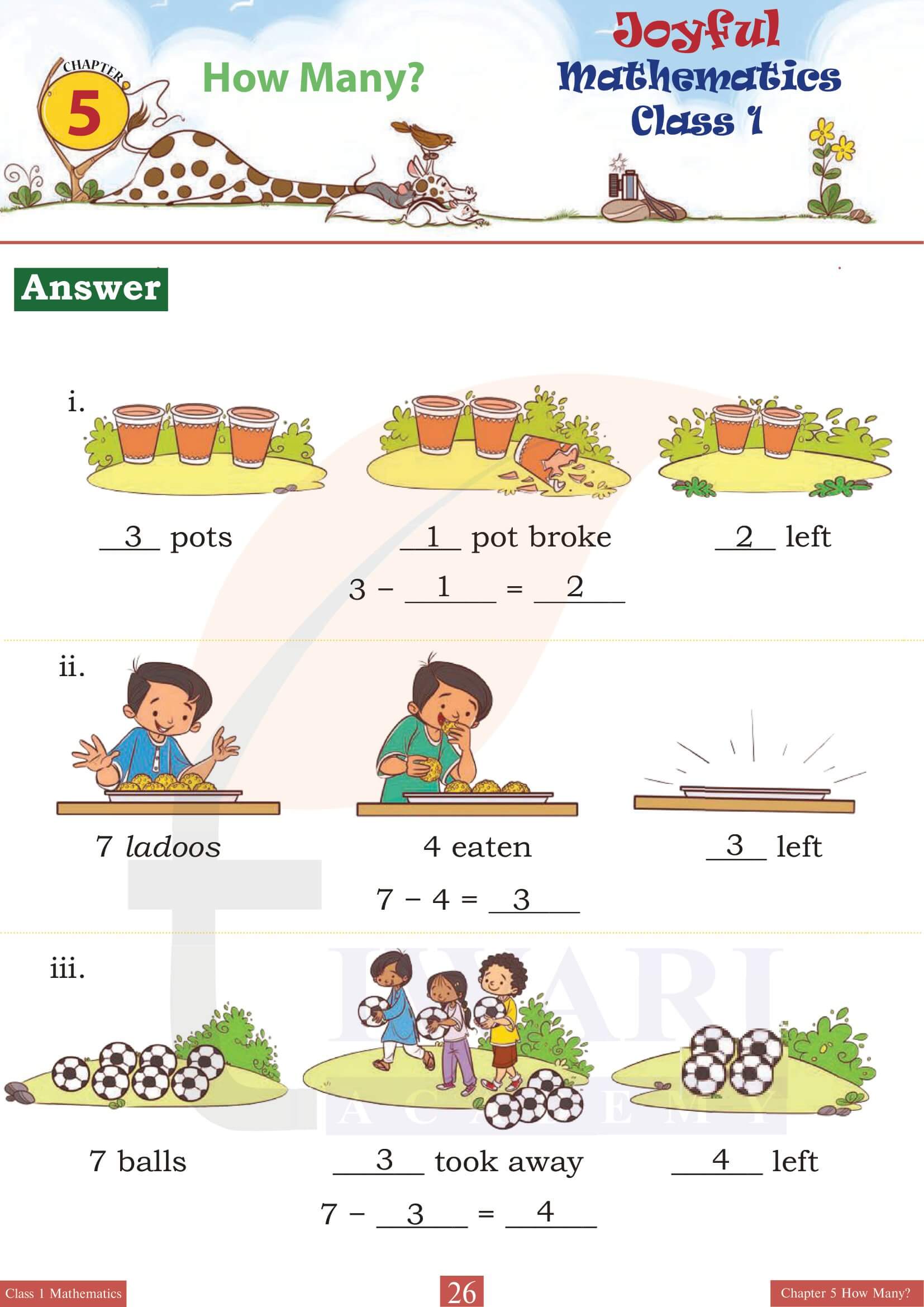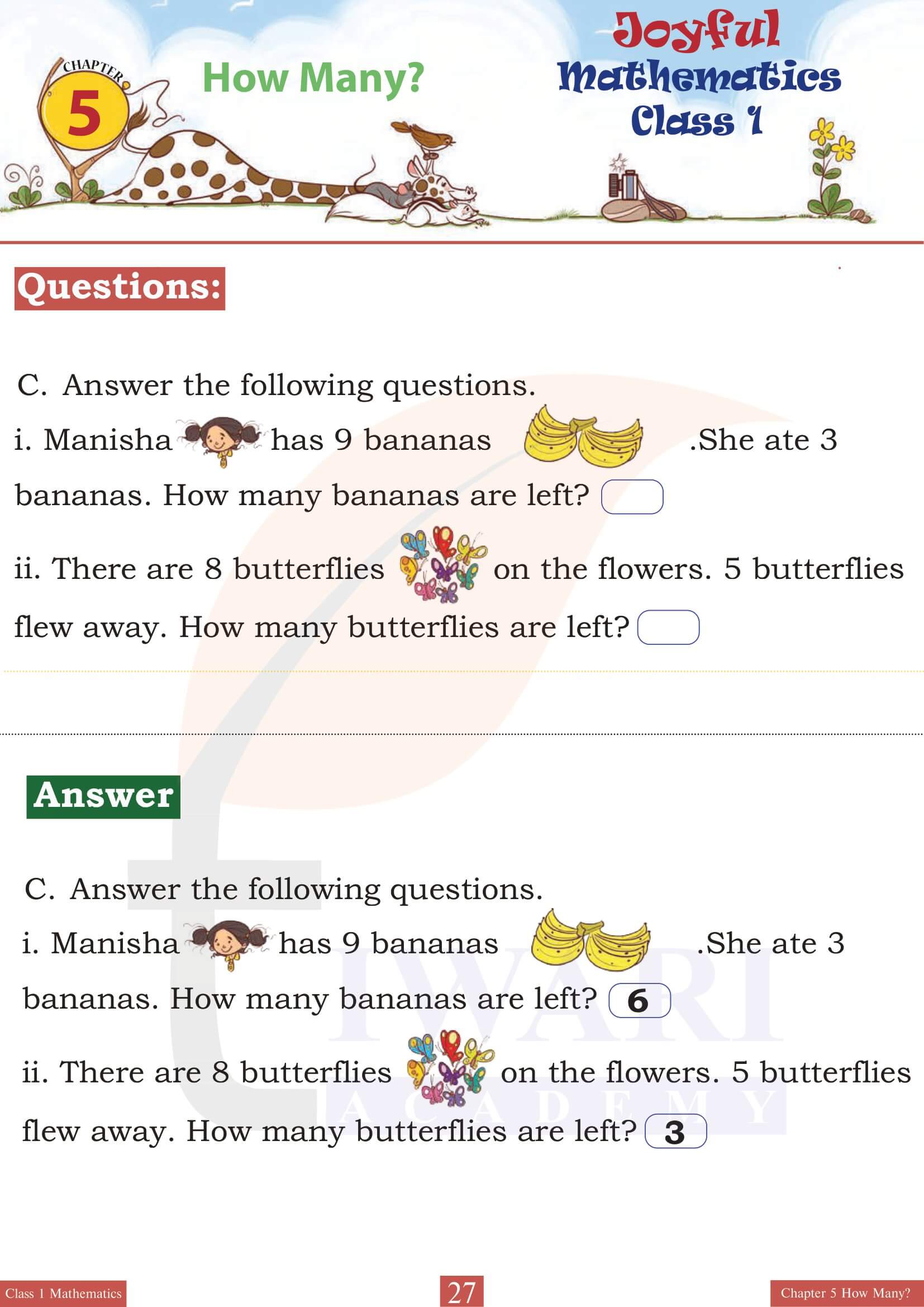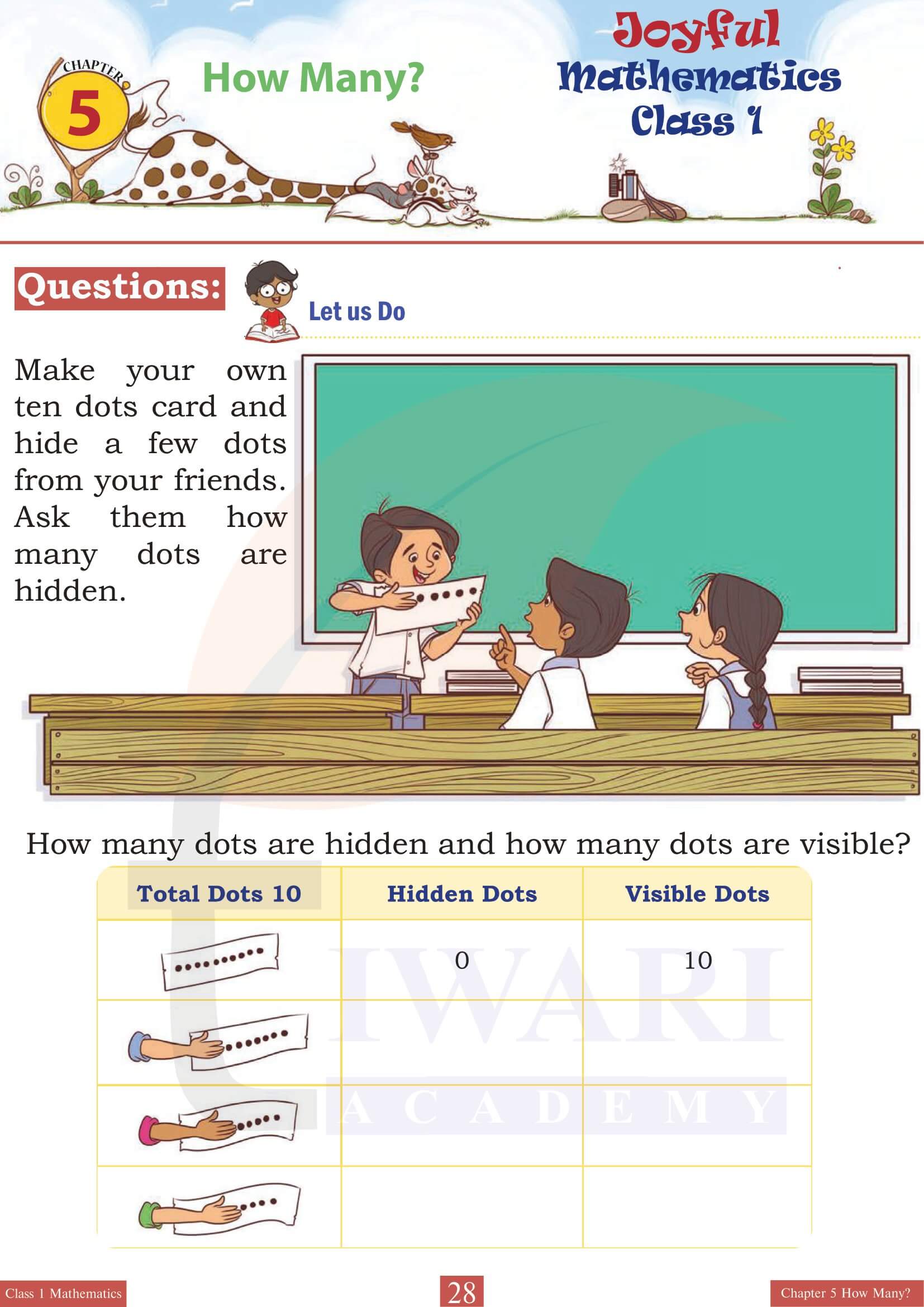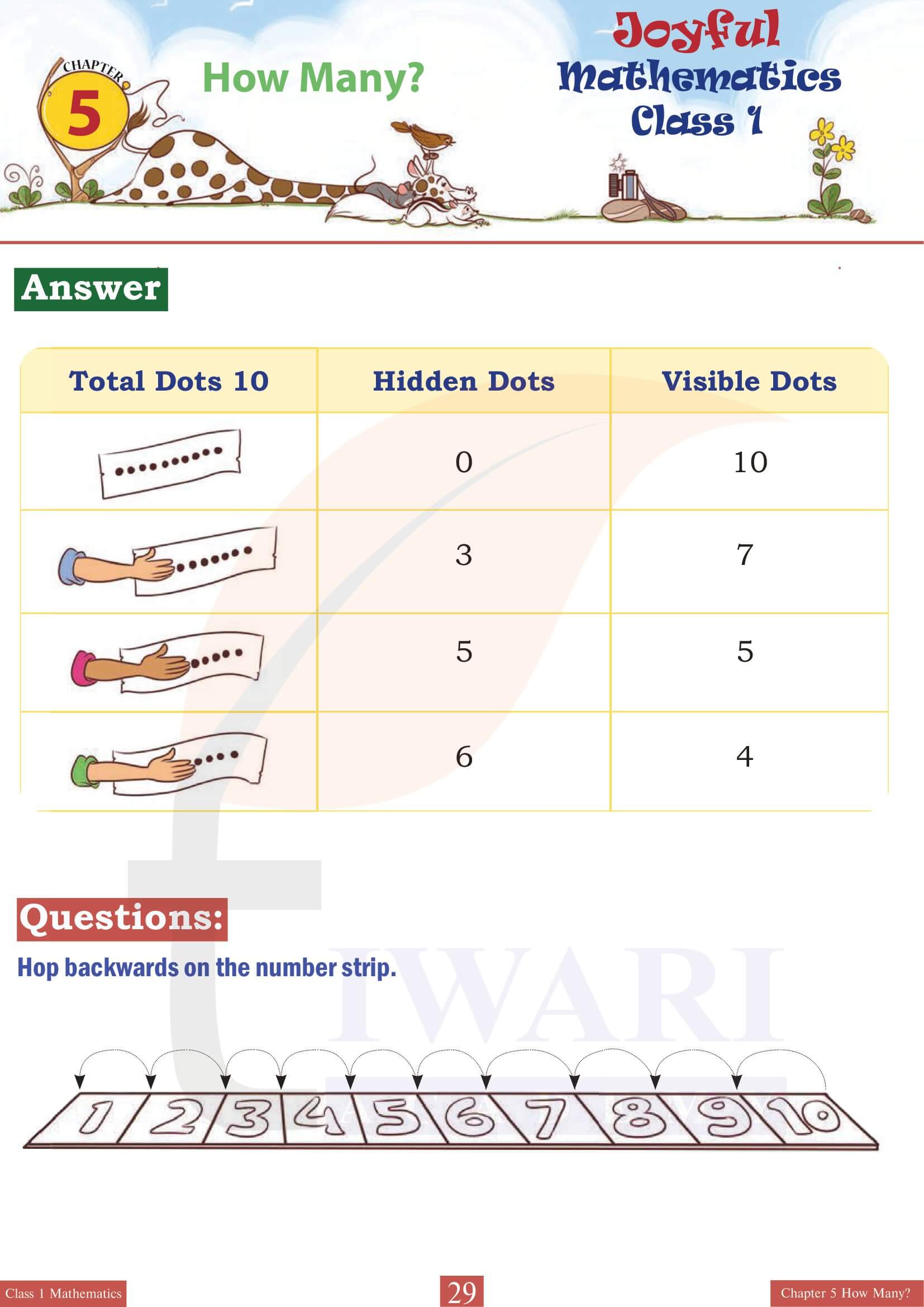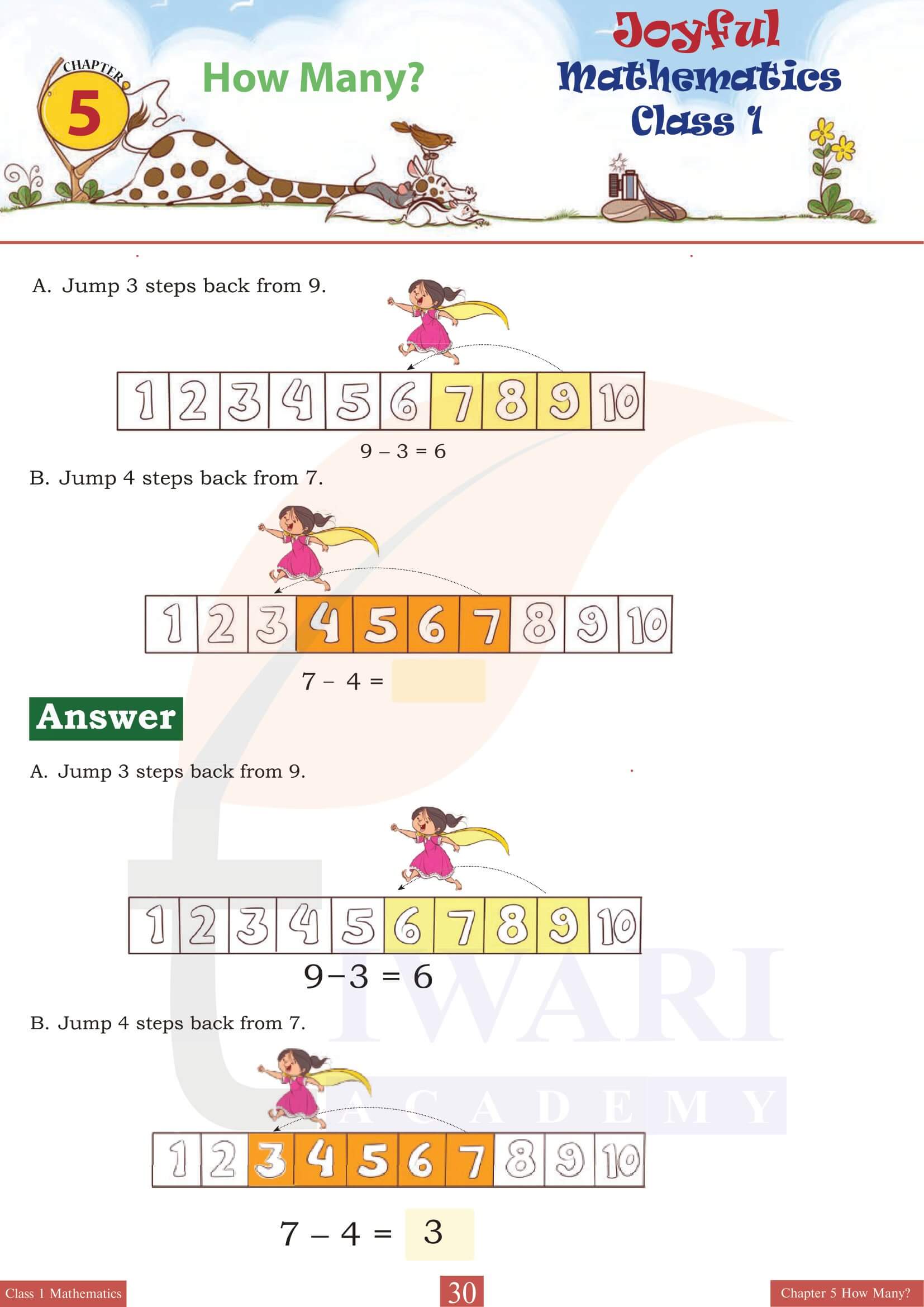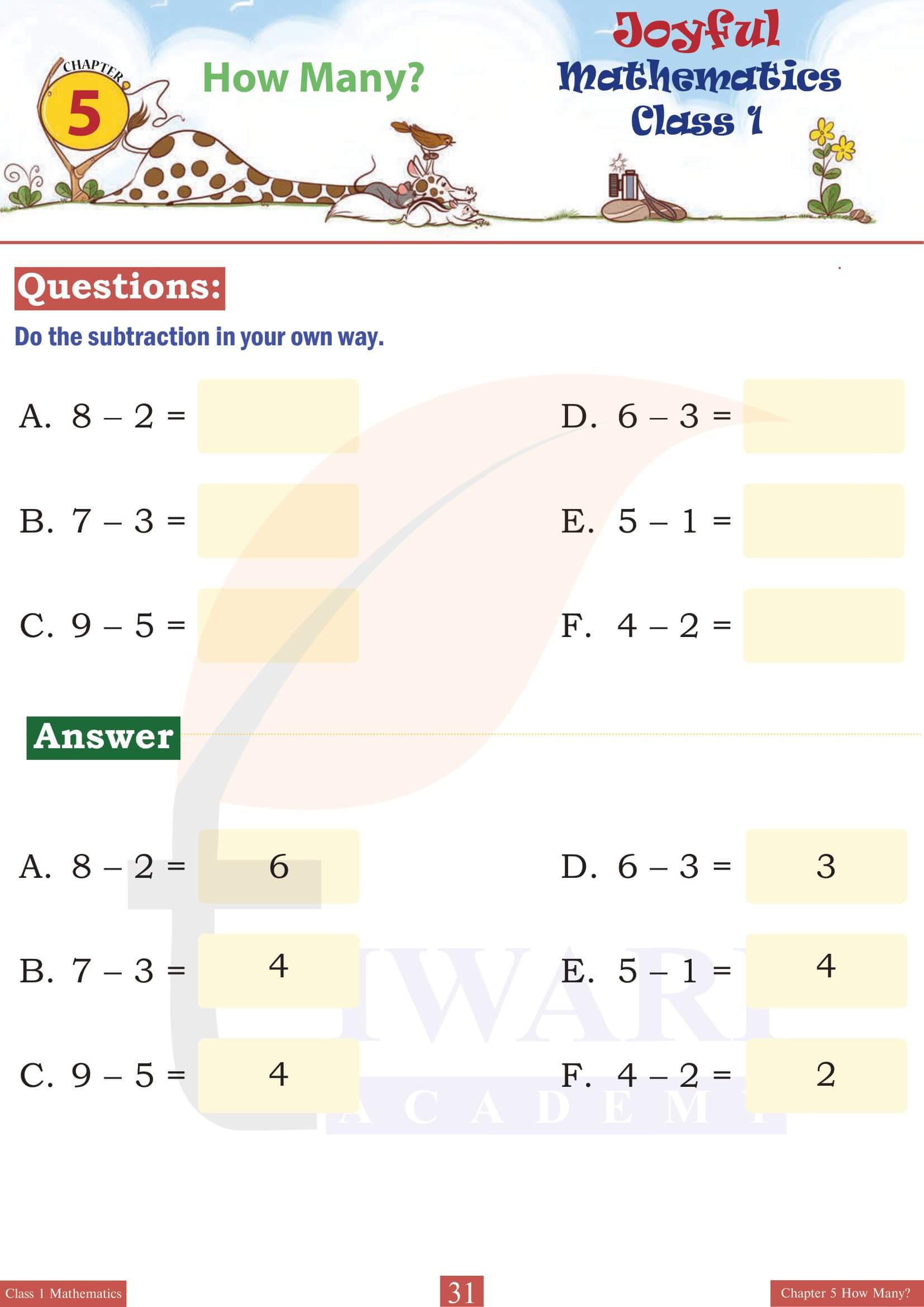NCERT Solutions for Class 1 Maths Joyful Chapter 5 How Many? (Addition and Subtraction of Single Digit Numbers) updated for session 2025-26 in Hindi and English Medium. Class 1 Joyful Maths chapter 5 question answers are formed as per the NEP 2020 in simple language which are easy to understand.
Study Plan for Class 1 Math Exam
Class 1 Maths How Many? (Addition and Subtraction of Single Digit Numbers)
The chapter “How Many” from Class 1 Maths Textbook “Joyful” is meticulously designed to introduce young learners, typically aged 6-7 years, to the fundamental concepts of counting and understanding quantities. This chapter is an essential stepping stone in laying the foundation for mathematical skills that students will continue to build upon throughout their academic journey and daily life. Spanning various interactive exercises, visual aids and real-life examples, “How Many” aims to make learning an engaging and enjoyable experience for first graders.
Introduction to Numbers and Counting
The chapter 5 of class 1 joyful mathematics, begins with simple, relatable scenarios that involve counting objects in everyday life. These could range from counting fruits in a basket, pencils in a box, to birds sitting on a tree. The idea is to make children comfortable with numbers by integrating them into familiar contexts. By doing so, the chapter not only teaches children how to count but also helps them understand the importance of numbers in organizing and making sense of the world around them.
Counting Techniques
To aid in the development of counting skills, “How Many” introduces various techniques such as counting on fingers, using number lines and group counting. These methods are presented in a playful manner, often accompanied by colorful illustrations and characters that guide the children through the learning process. For example, a character invite the learner to count along as they add apples to a basket, one by one, emphasizing the sequential nature of numbers.
Recognizing Numbers
A significant portion of the chapter 5 is dedicated to helping students recognize and write numbers. Through a series of exercises, children are encouraged to identify numbers in different forms and contexts, such as on dice, clocks or pages in a book. Activities like matching numbers with quantities, filling in missing numbers and sequencing numbers are commonly employed to reinforce number recognition and understanding.
Introduction to Mathematical Operations
While the primary focus of “How Many” is on counting, the chapter gently introduces the concepts of addition and subtraction as extensions of counting more and less. Through storytelling and simple problems, students begin to see how numbers can be combined or taken apart to represent real-life situations, such as adding more toys to a collection or sharing cookies among friends.
Interactive and Hands-On Learning
The textbook emphasizes interactive learning, encouraging students to use physical objects for counting exercises. This could involve using blocks, beads or even drawing objects to count. These hands-on activities are good for developing fine motor skills and for helping children internalize the abstract concepts of numbers and quantities.
Assessments and Reinforcement
At the end of the chapter 5, there are assessments designed to gauge the students’ understanding of the concepts covered. These are often presented in fun, game-like formats that motivate children to demonstrate their counting skills. Tips for parents and guardians are provided to help reinforce these concepts outside the classroom, suggesting engaging activities that can be incorporated into daily routines.
Class 1 Maths Chapter 5 “How Many” of the Textbook “Joyful” serves as an introductory voyage into the world of numbers and counting, making it as enjoyable as it is educational. By weaving mathematical concepts into the fabric of everyday life, it lays a robust foundation for young learners, setting them on a path of curiosity, exploration and love for mathematics. Through its interactive approach, the chapter not only teaches children the basics of counting but also instills in them critical thinking and problem-solving skills that are vital for their future academic and personal success.
